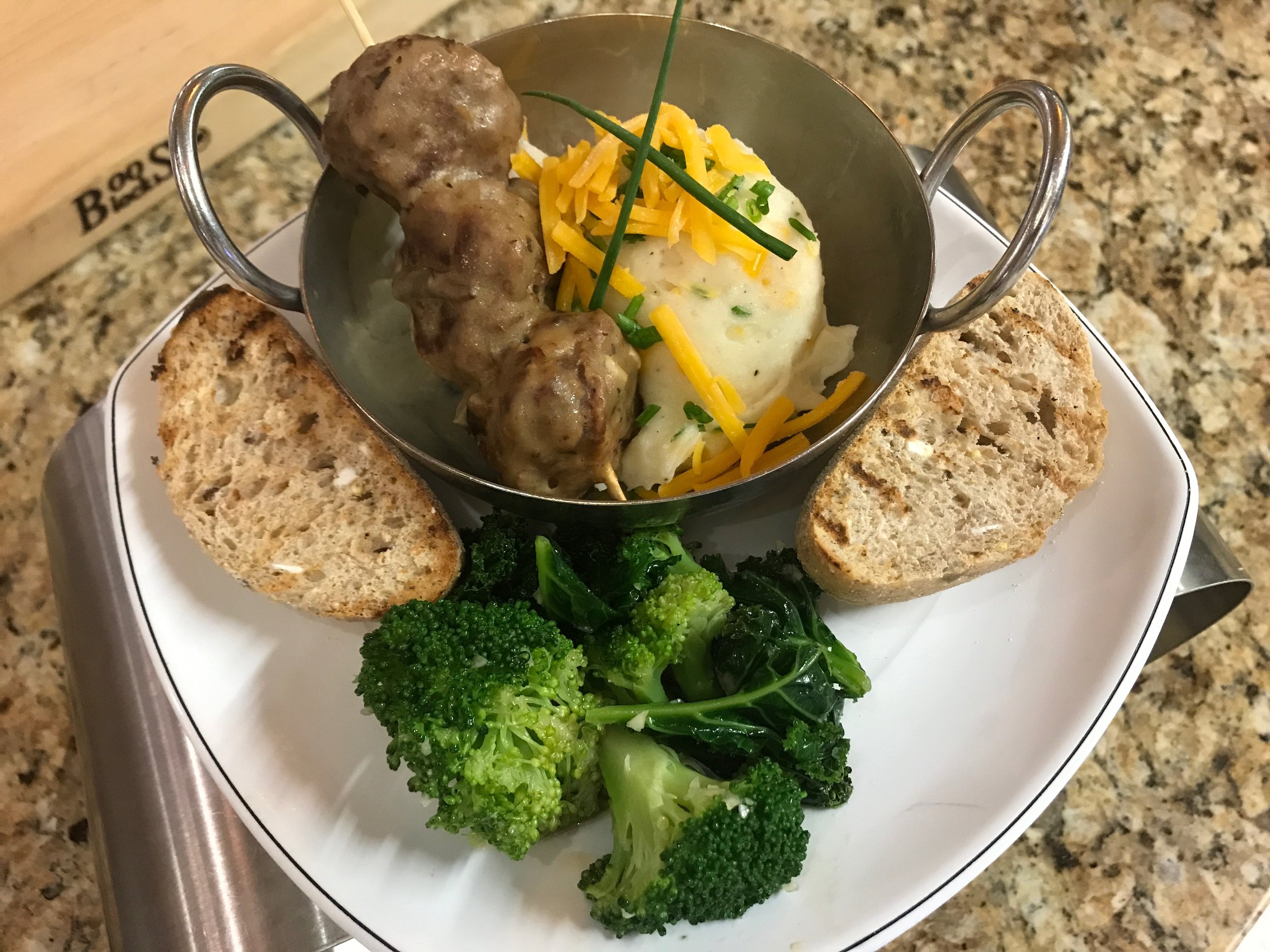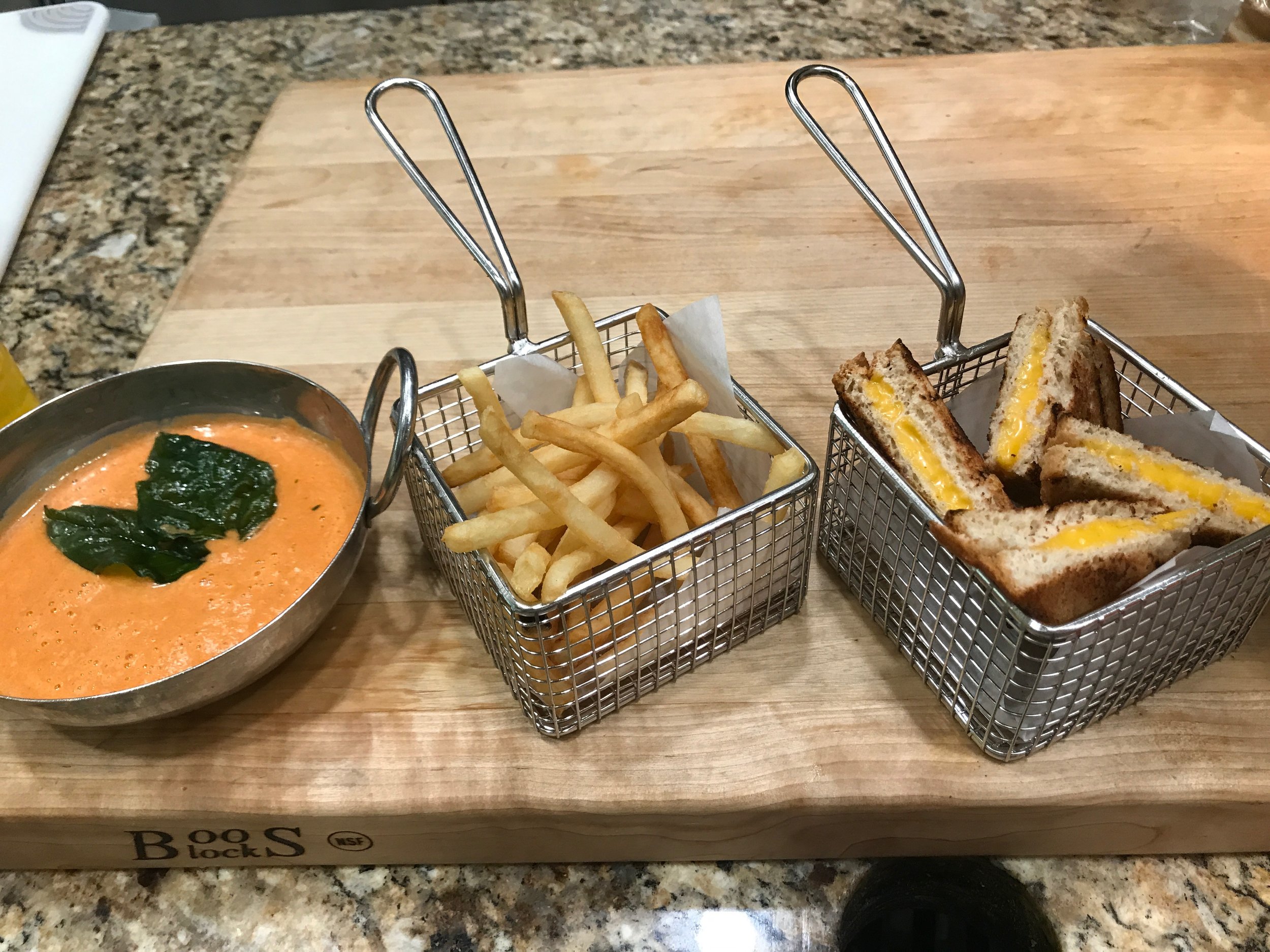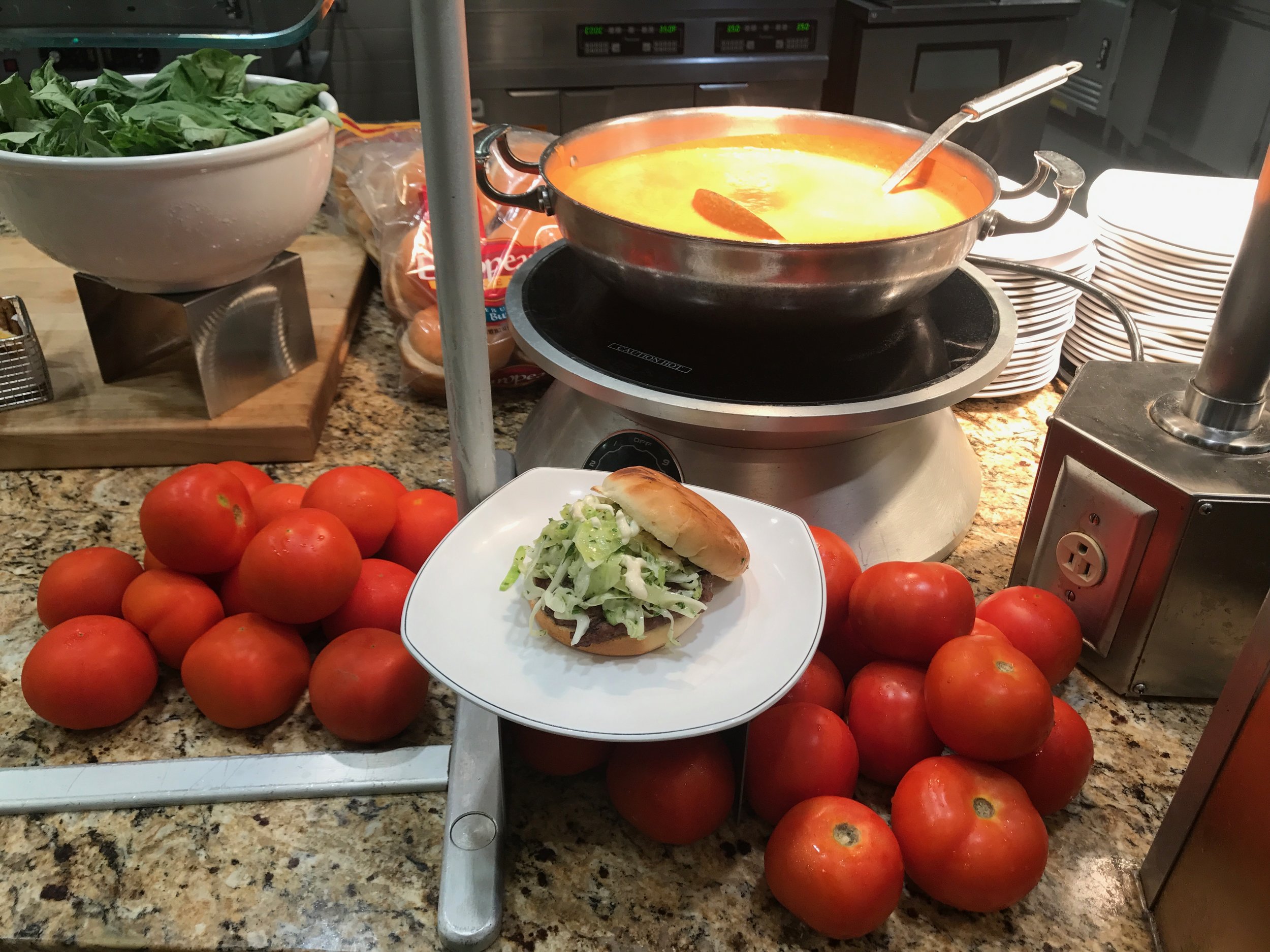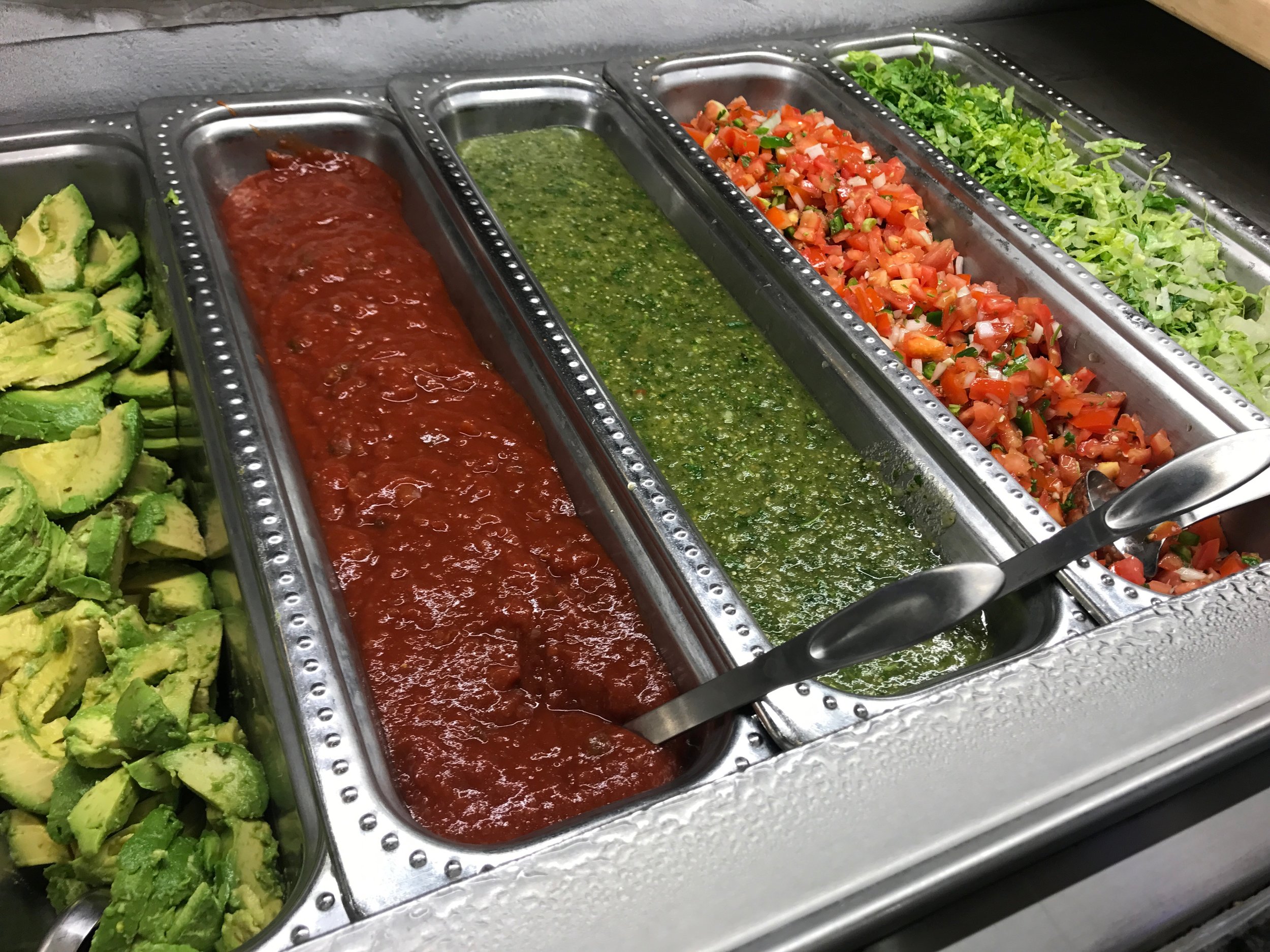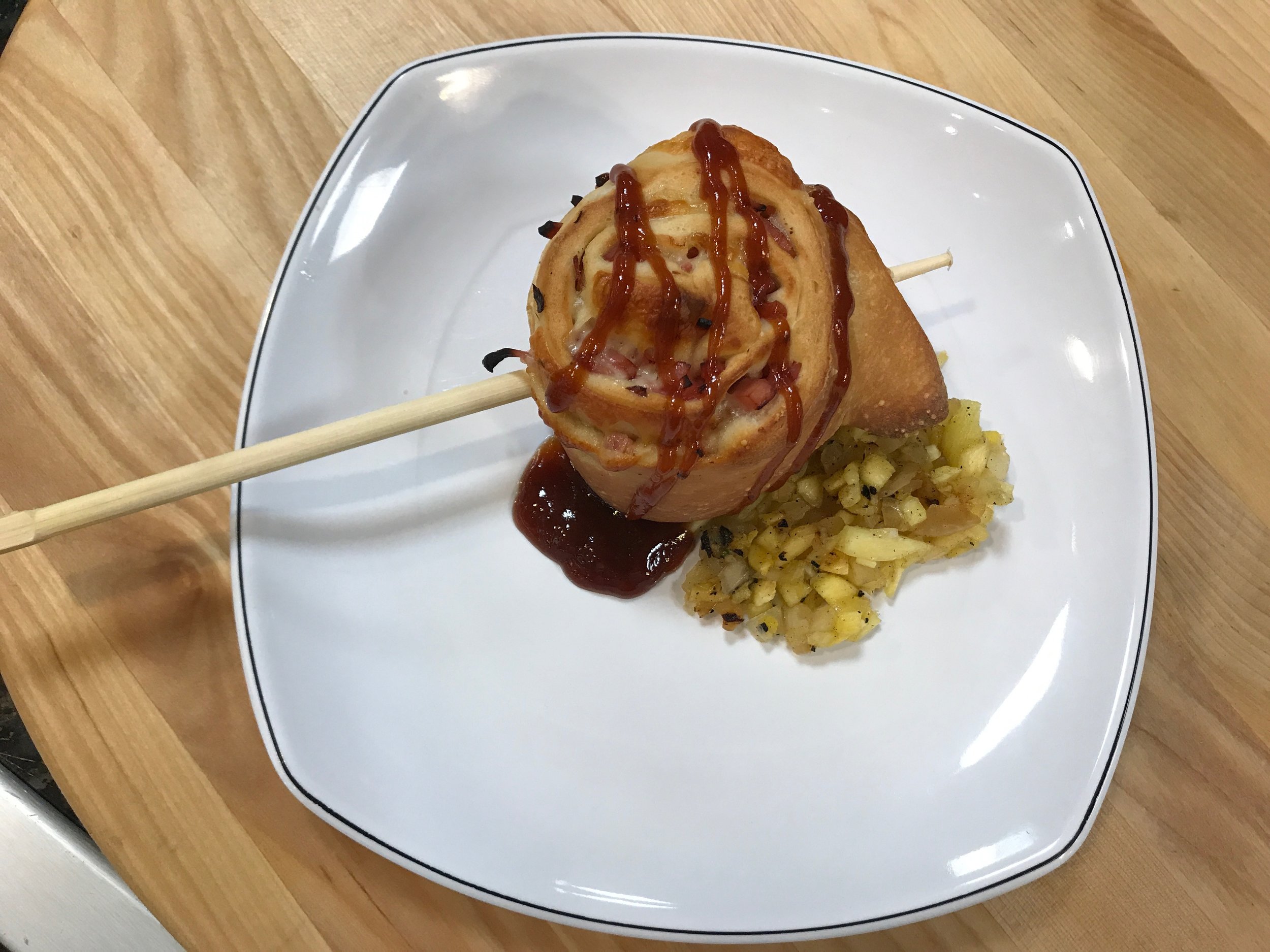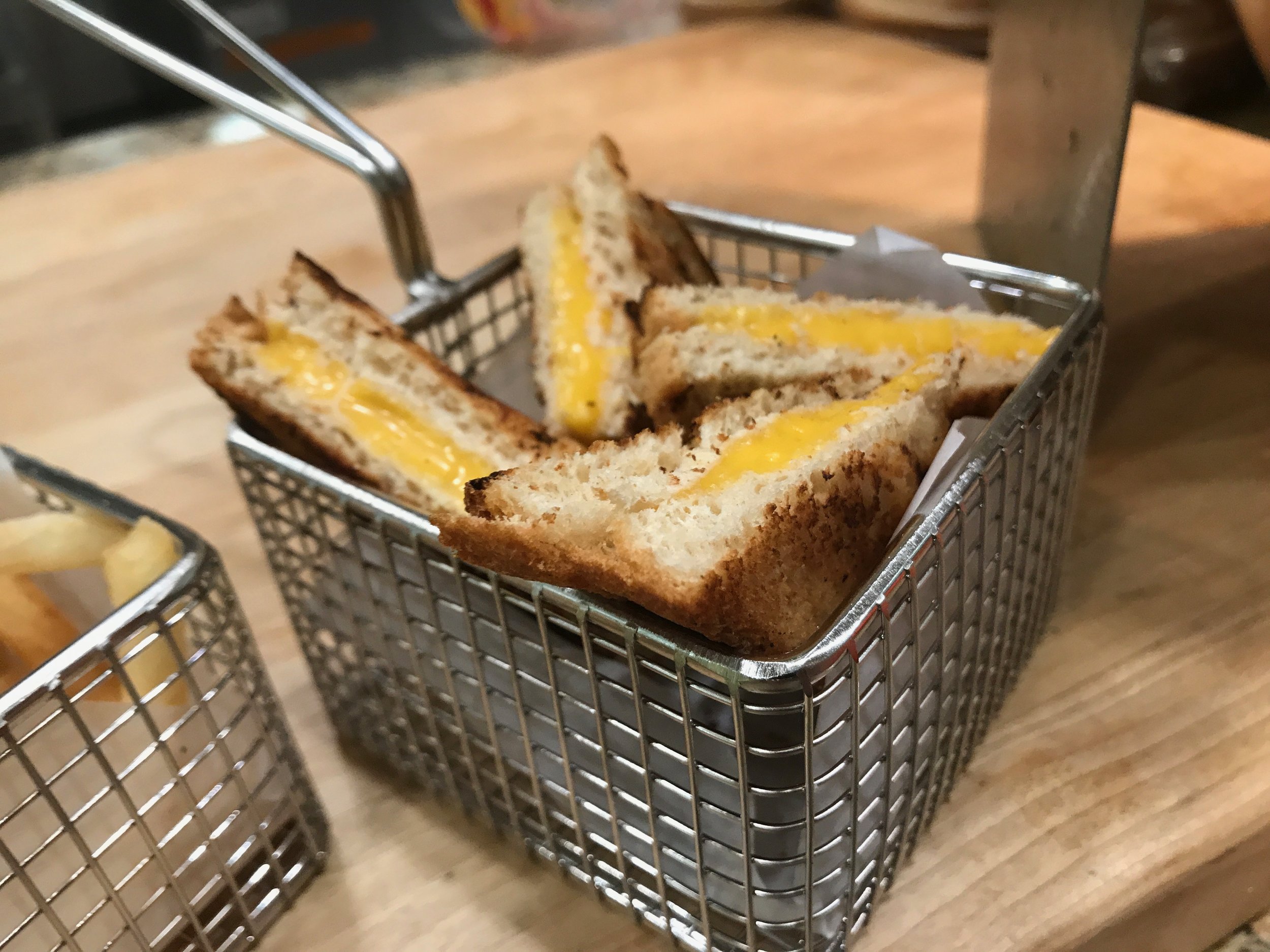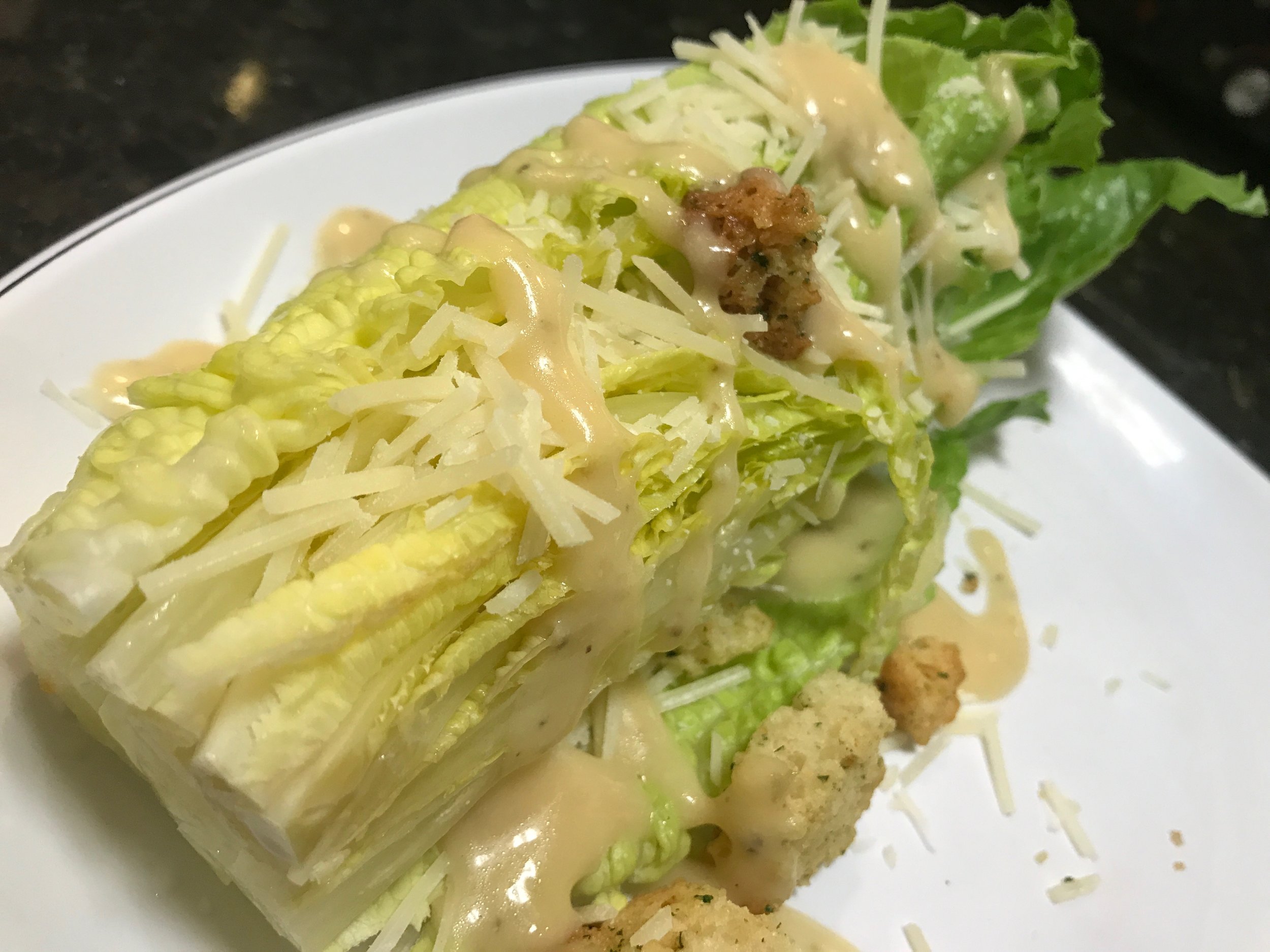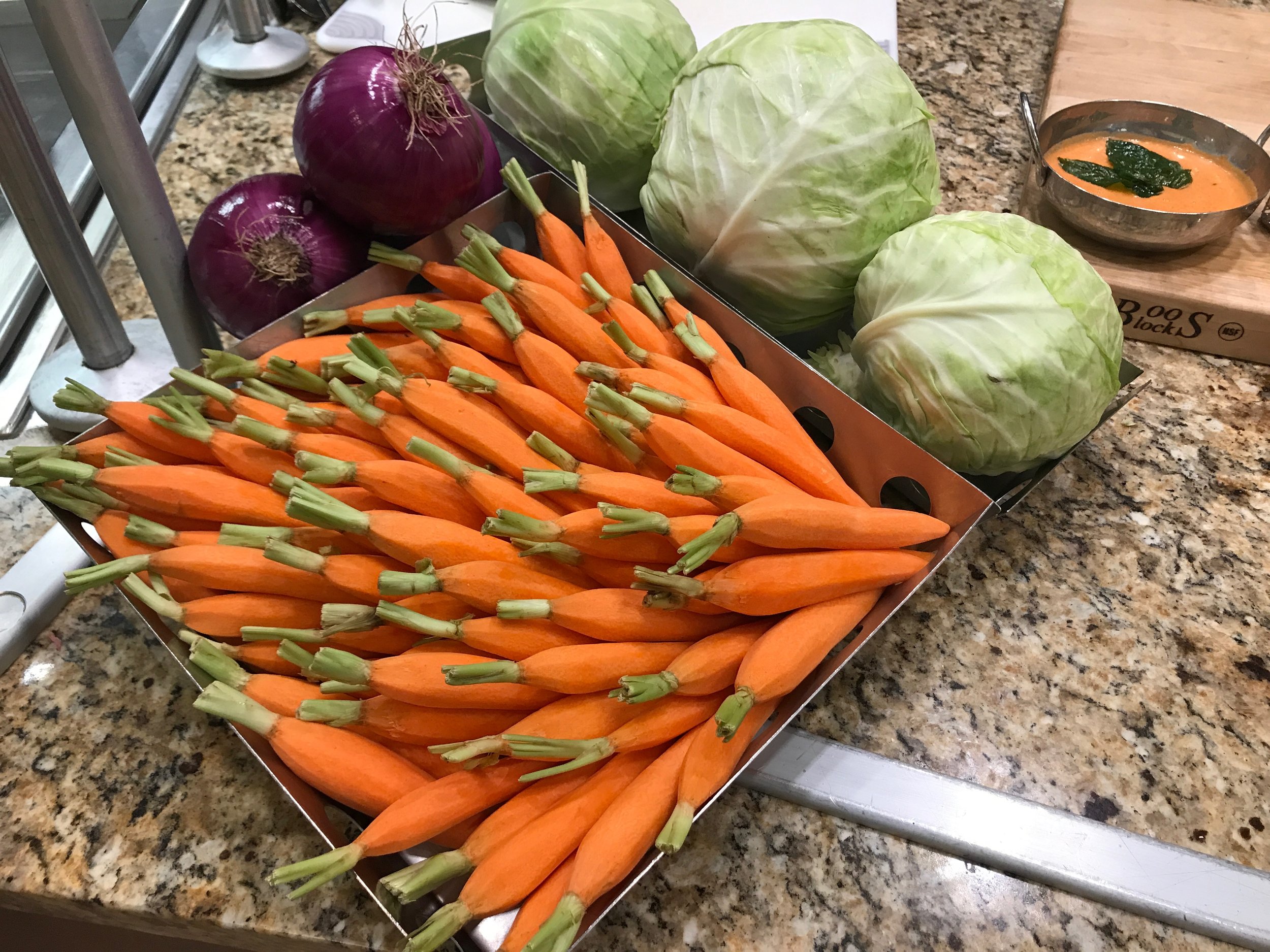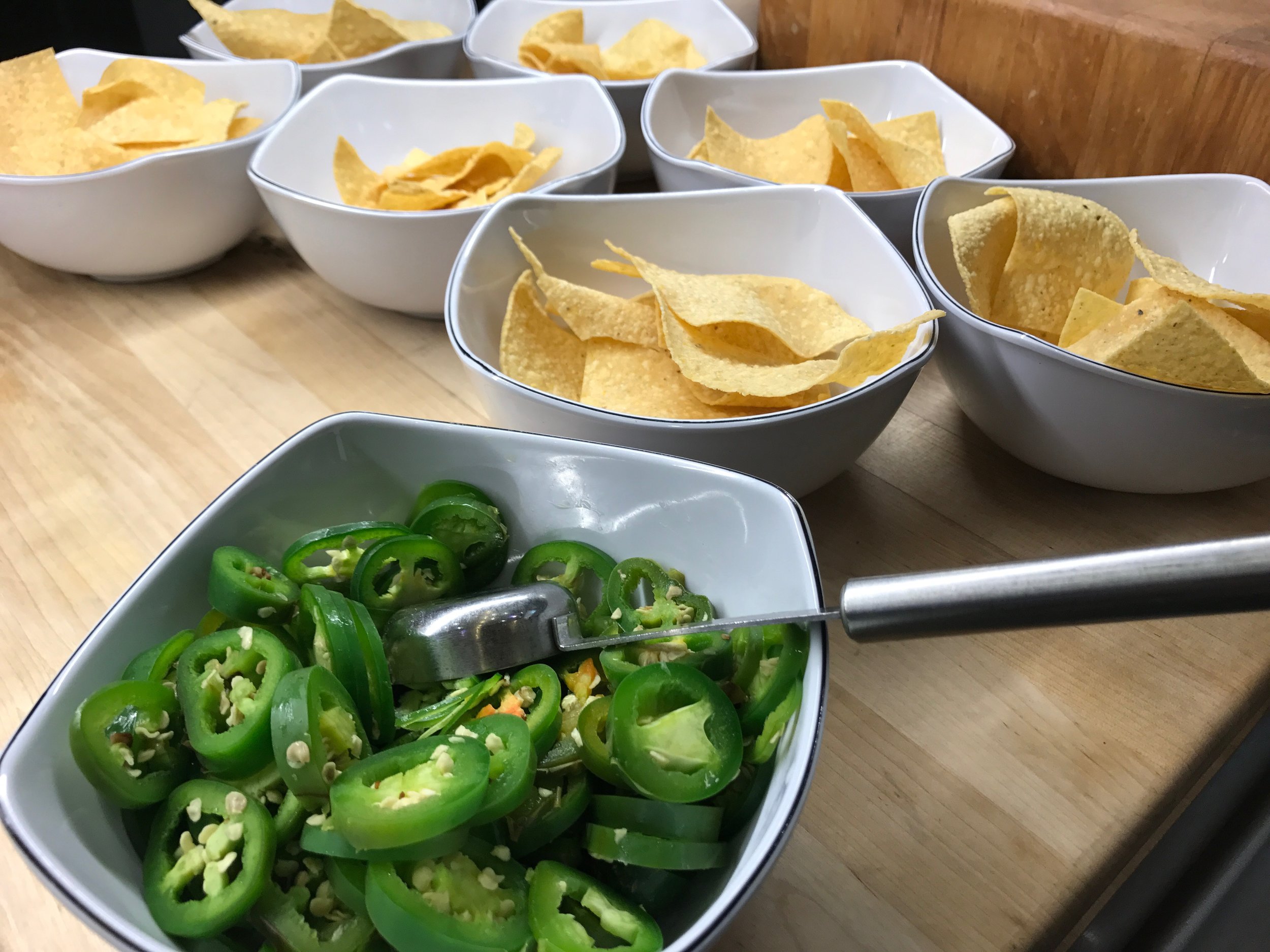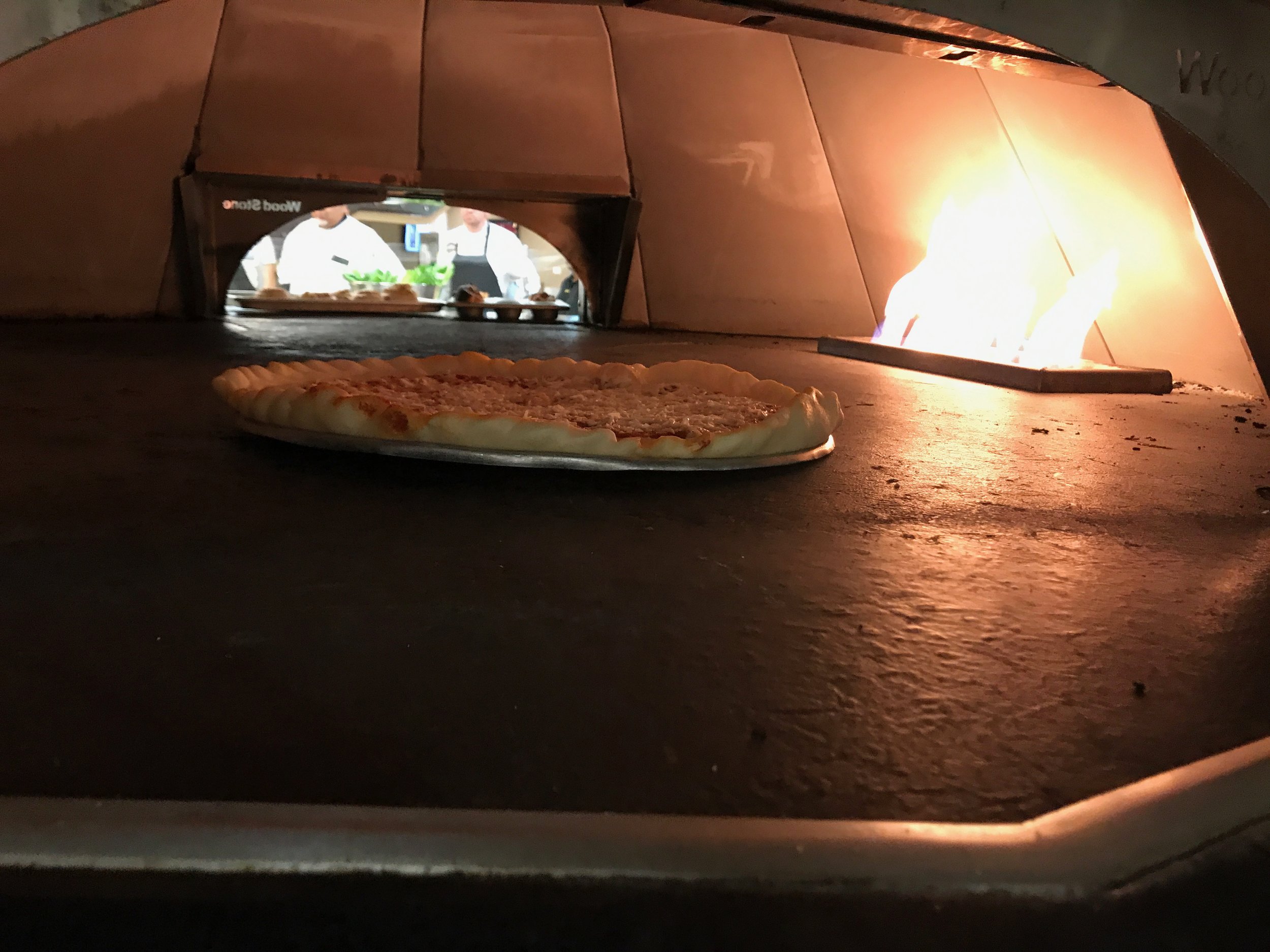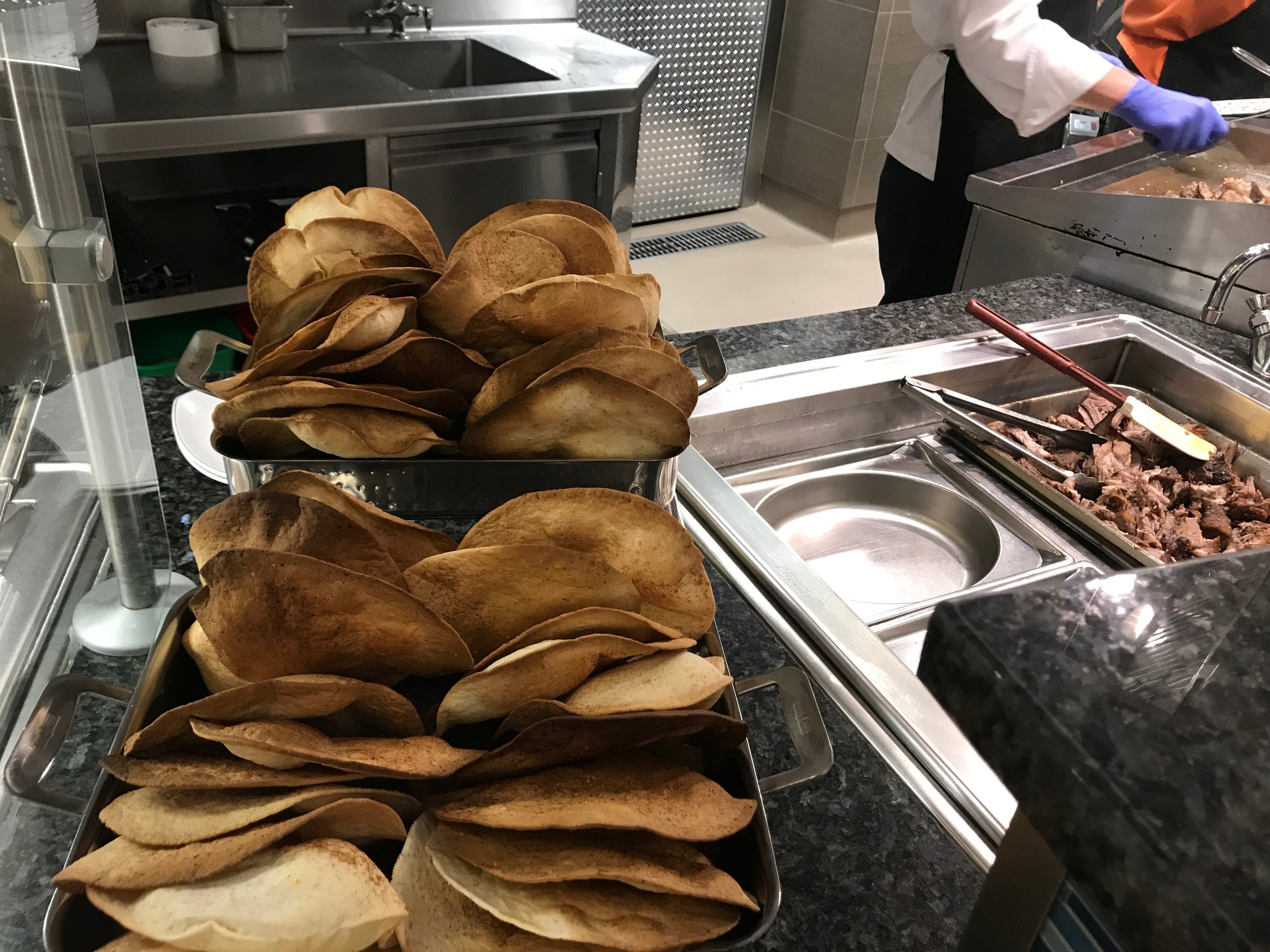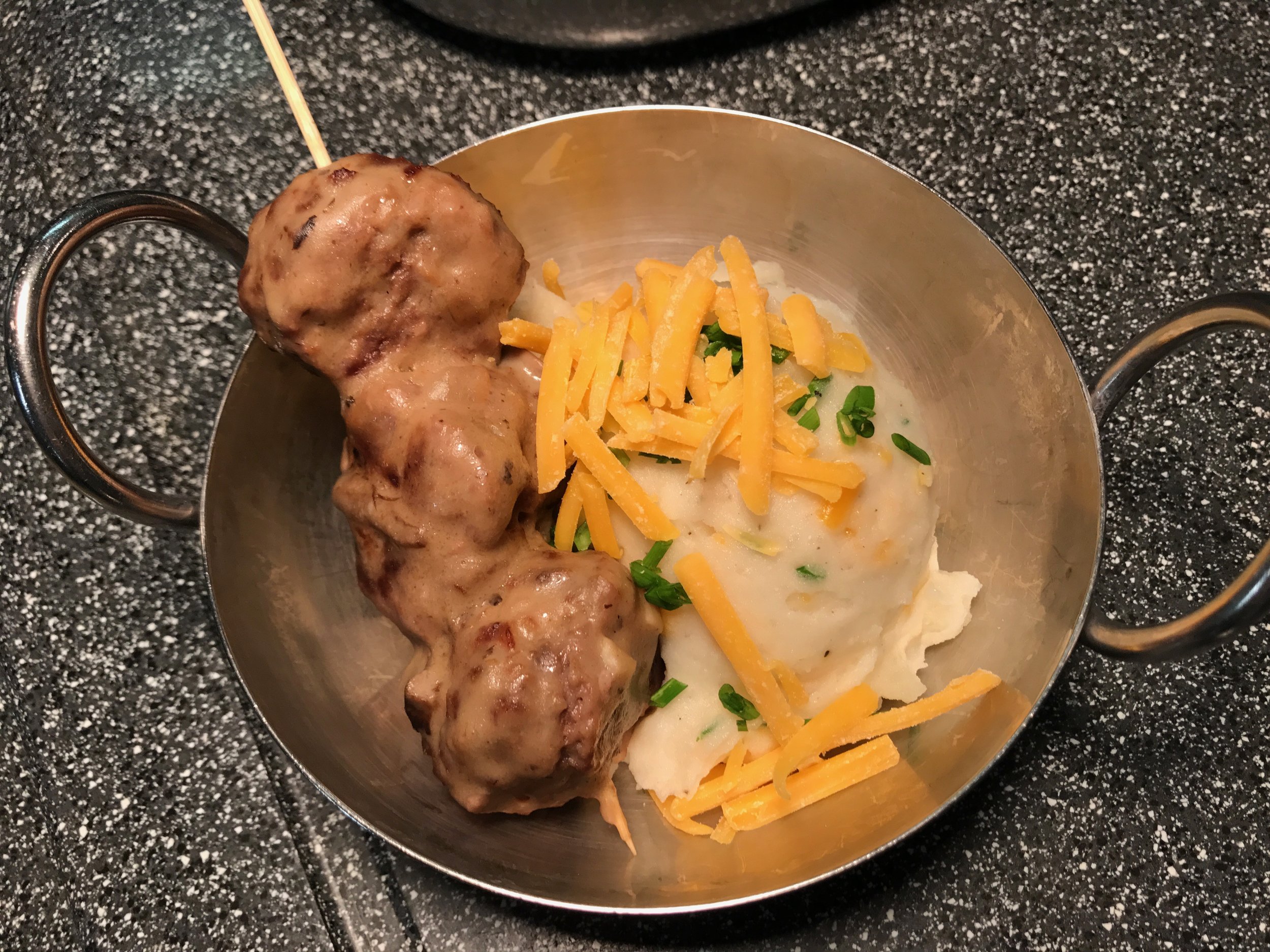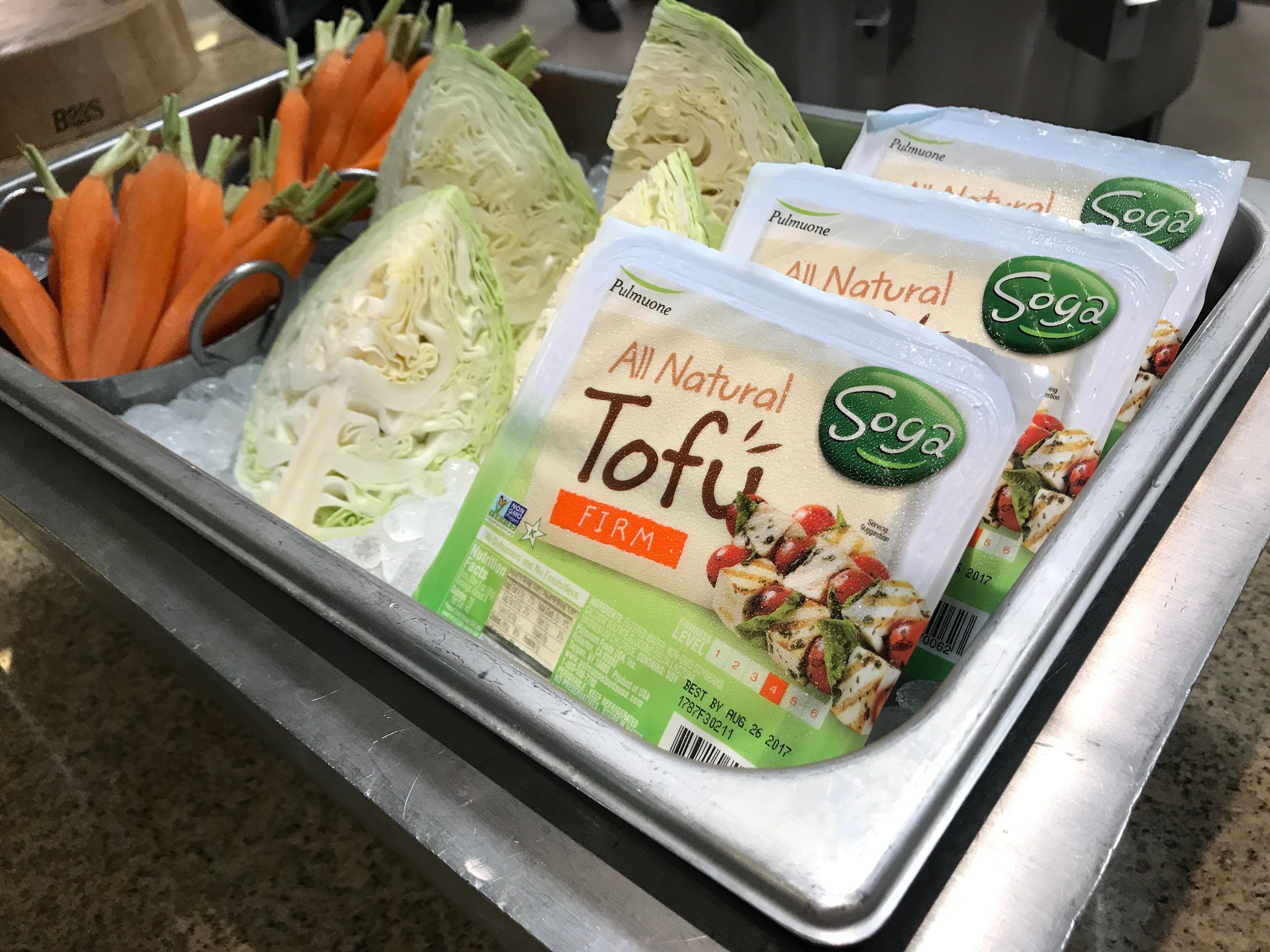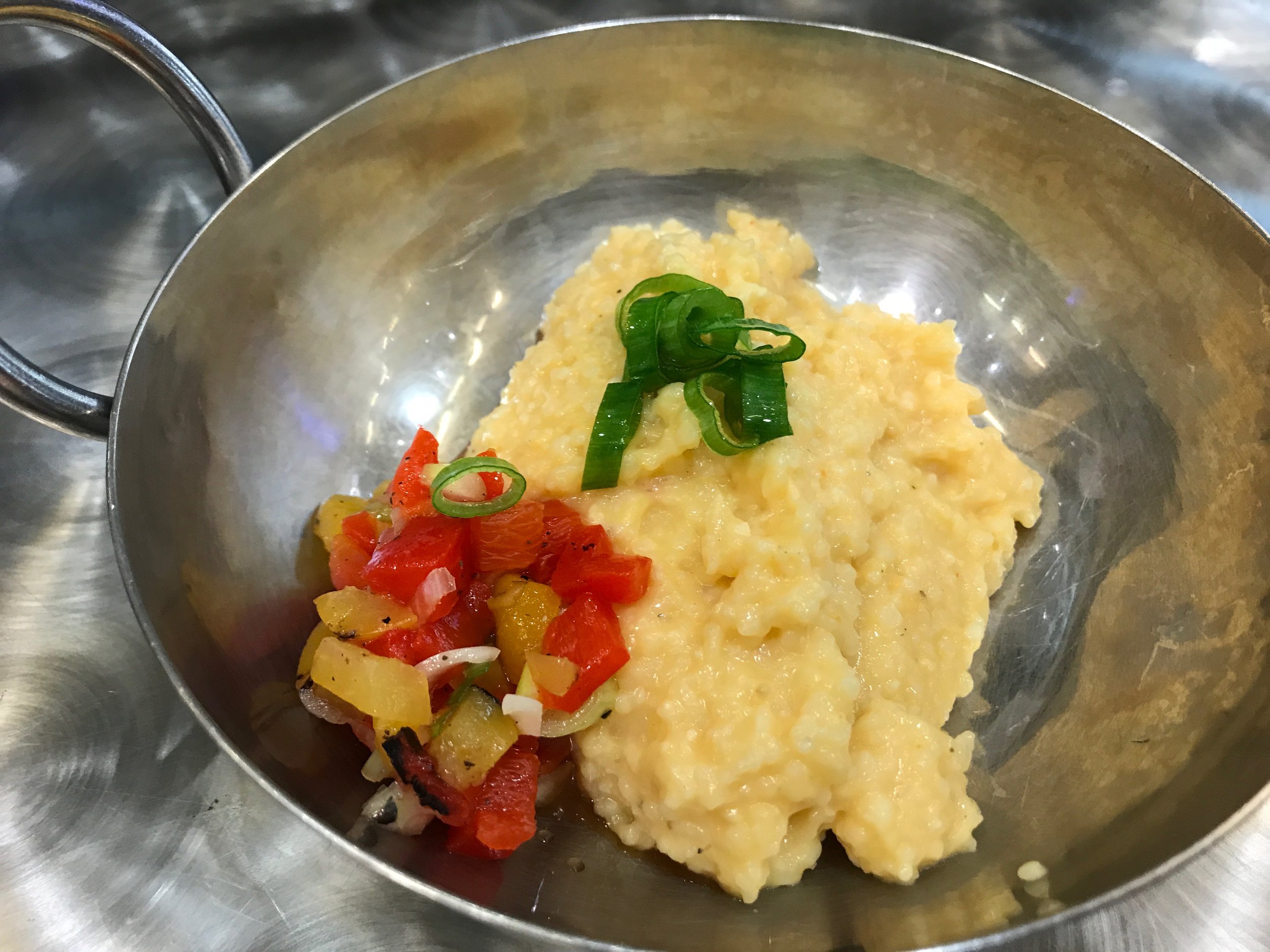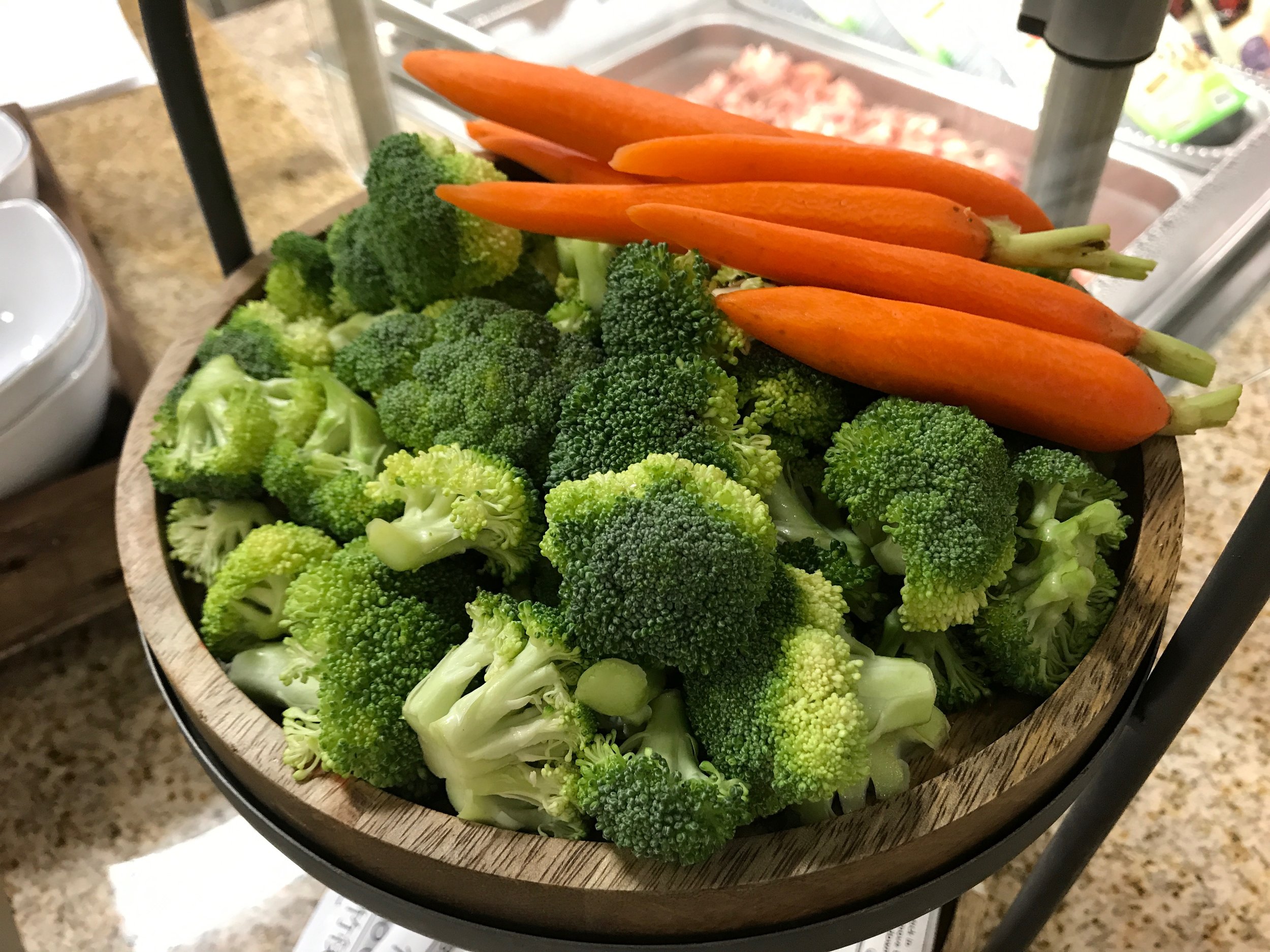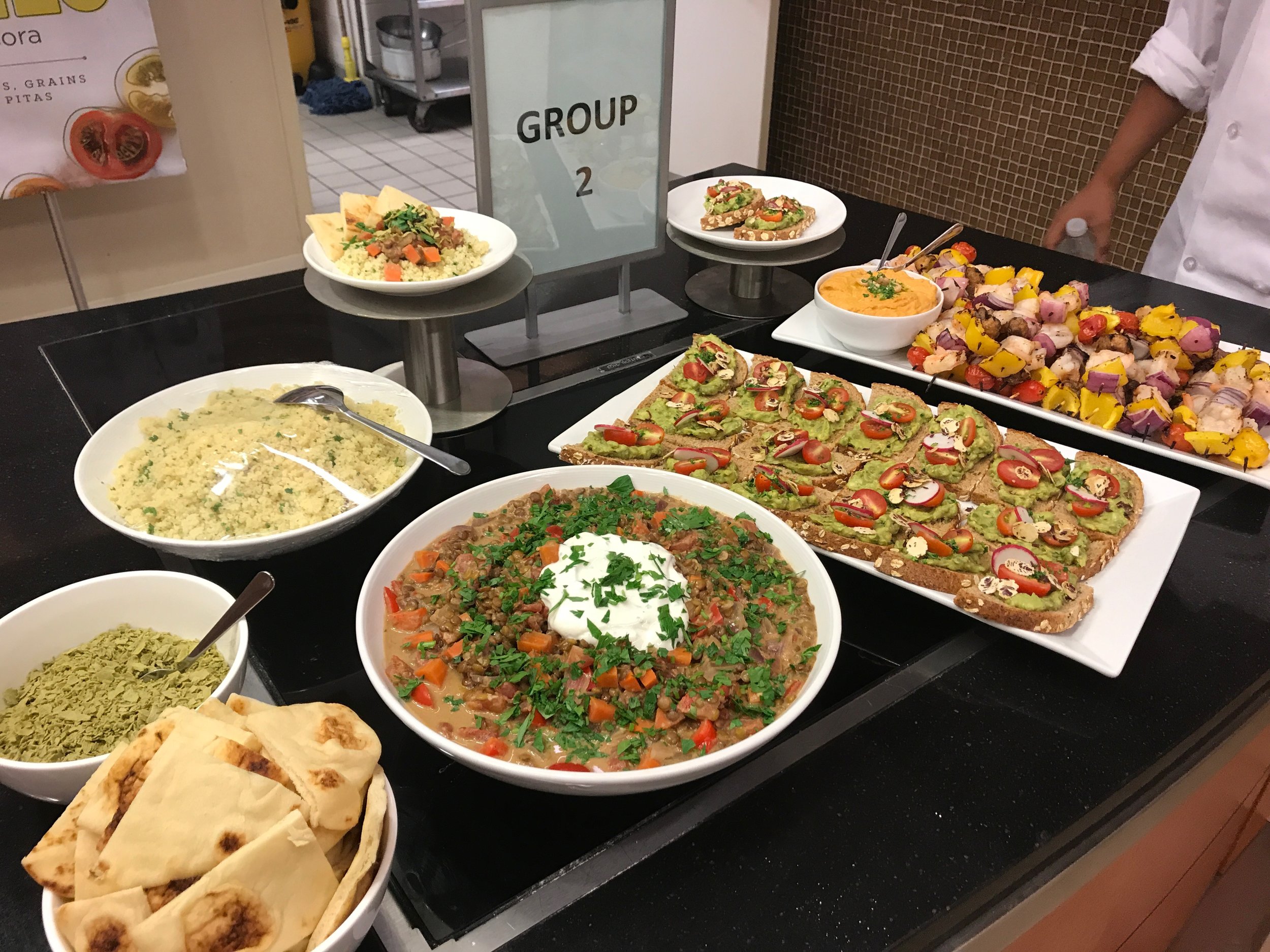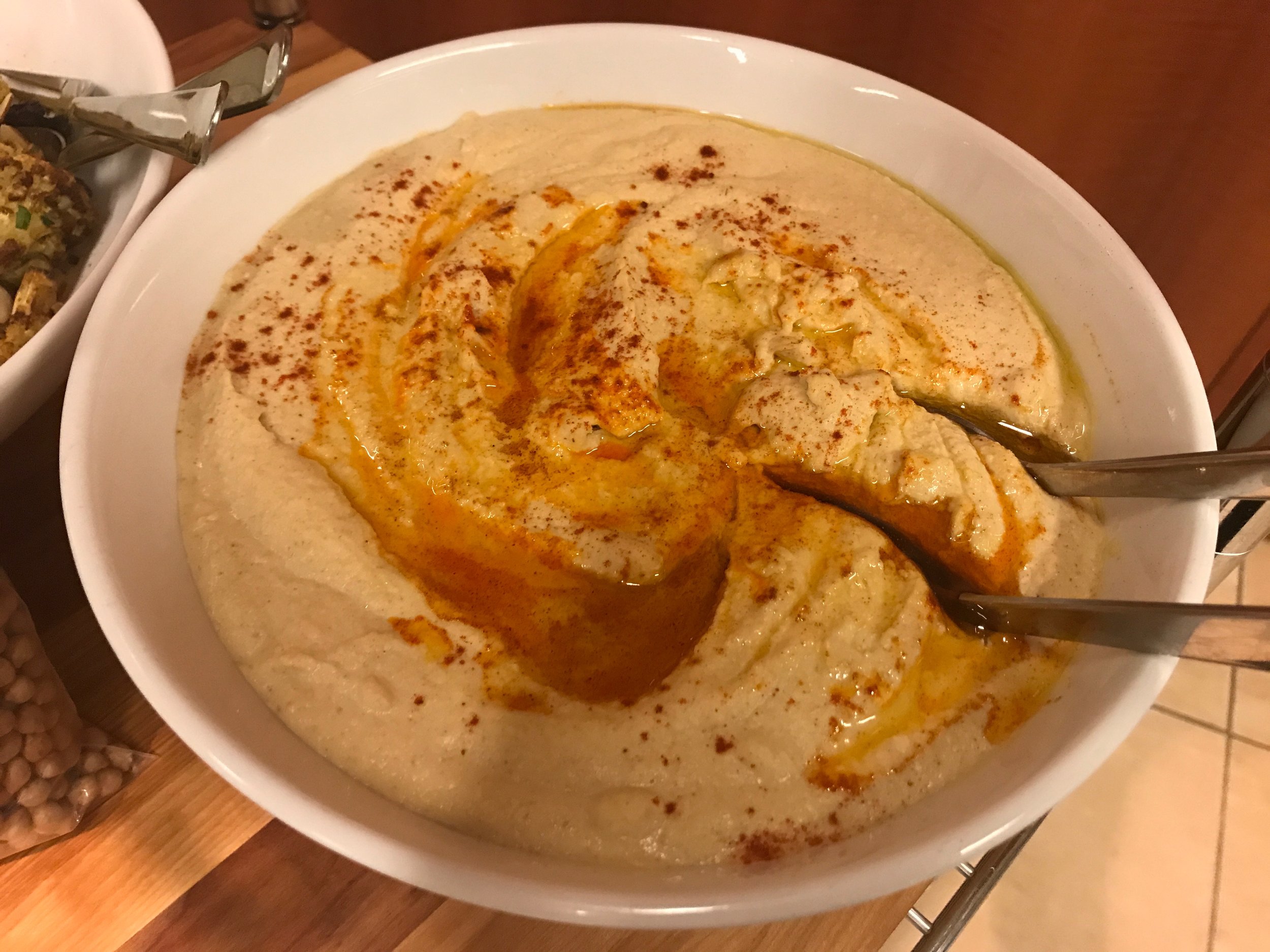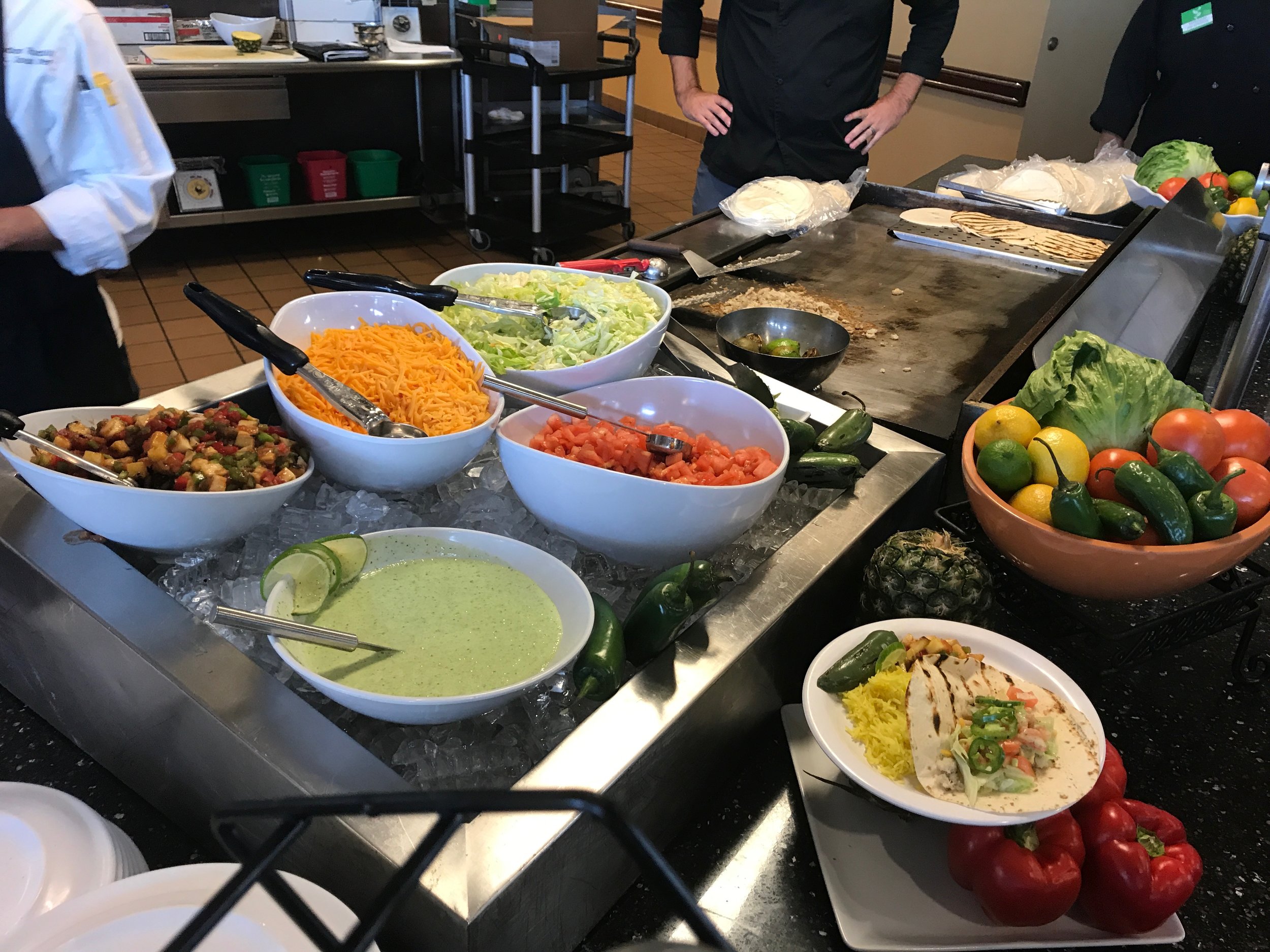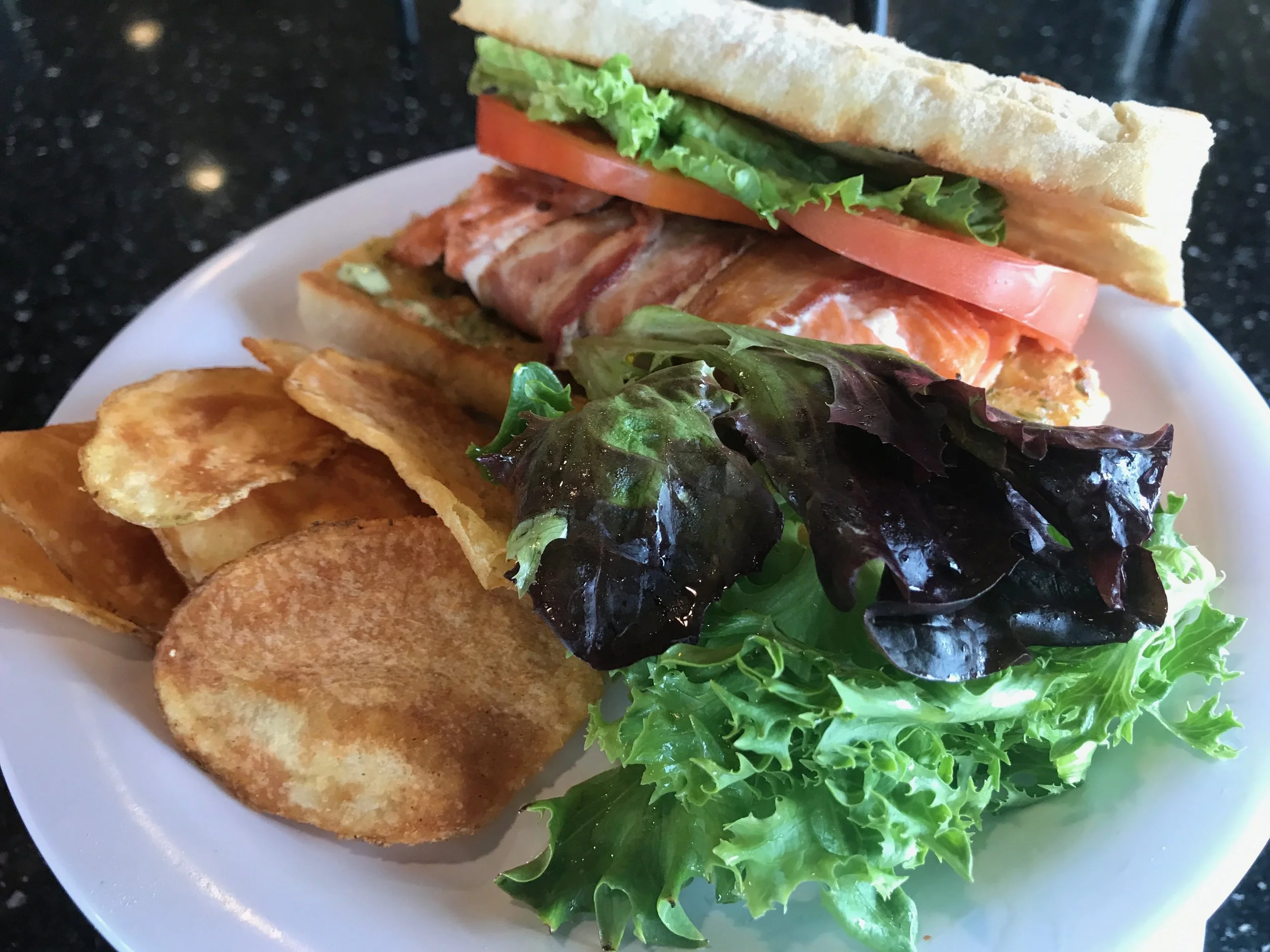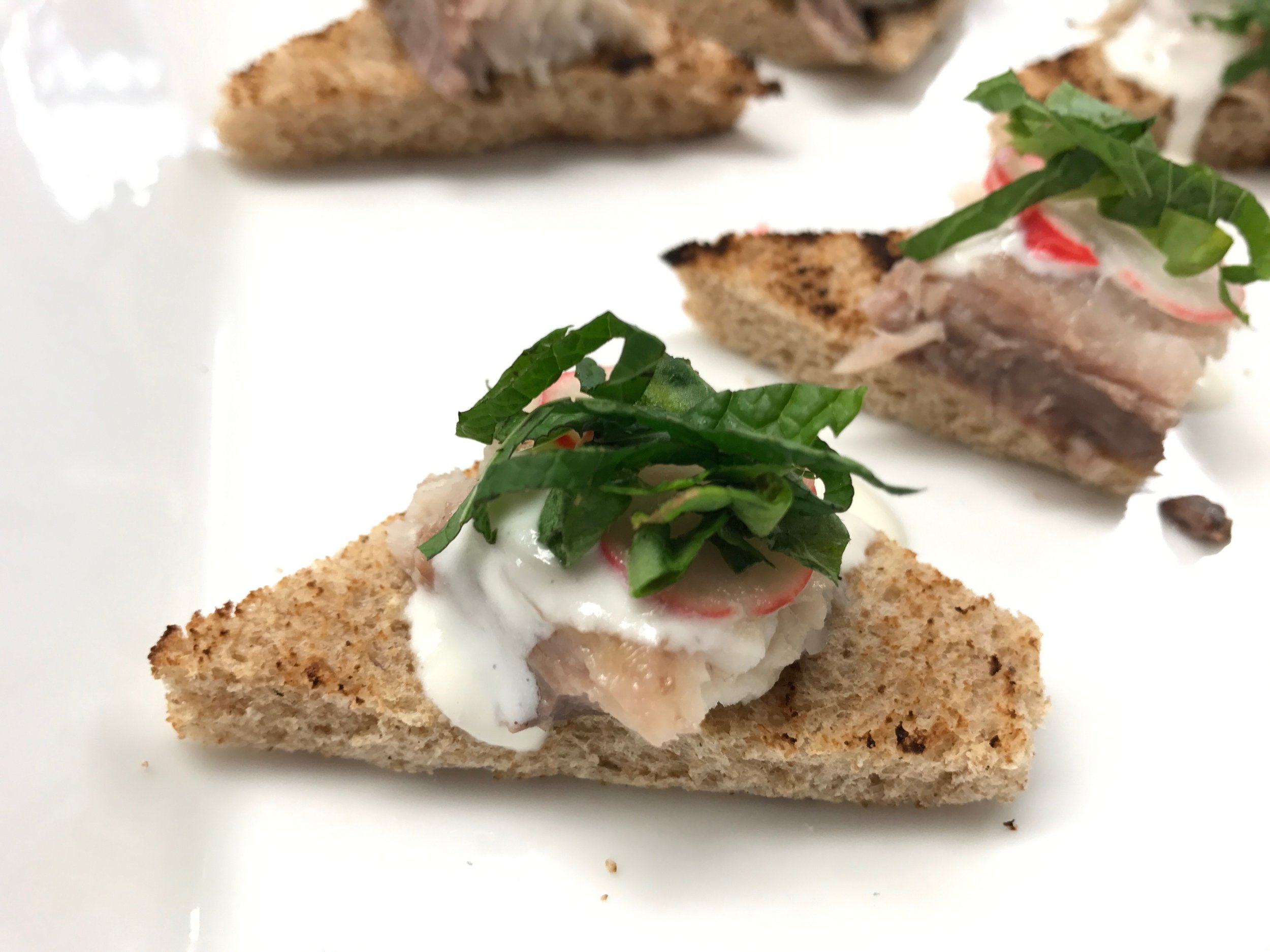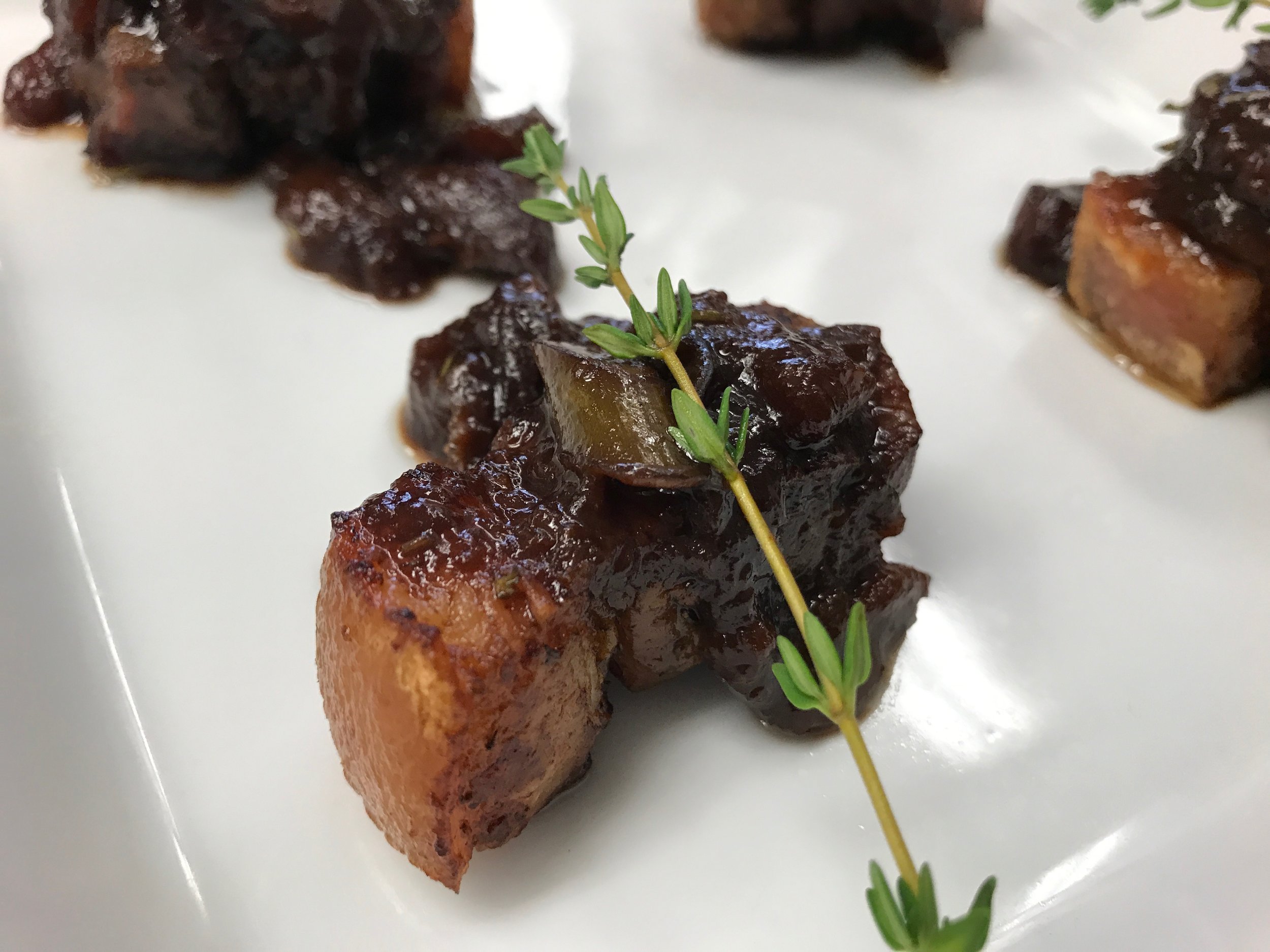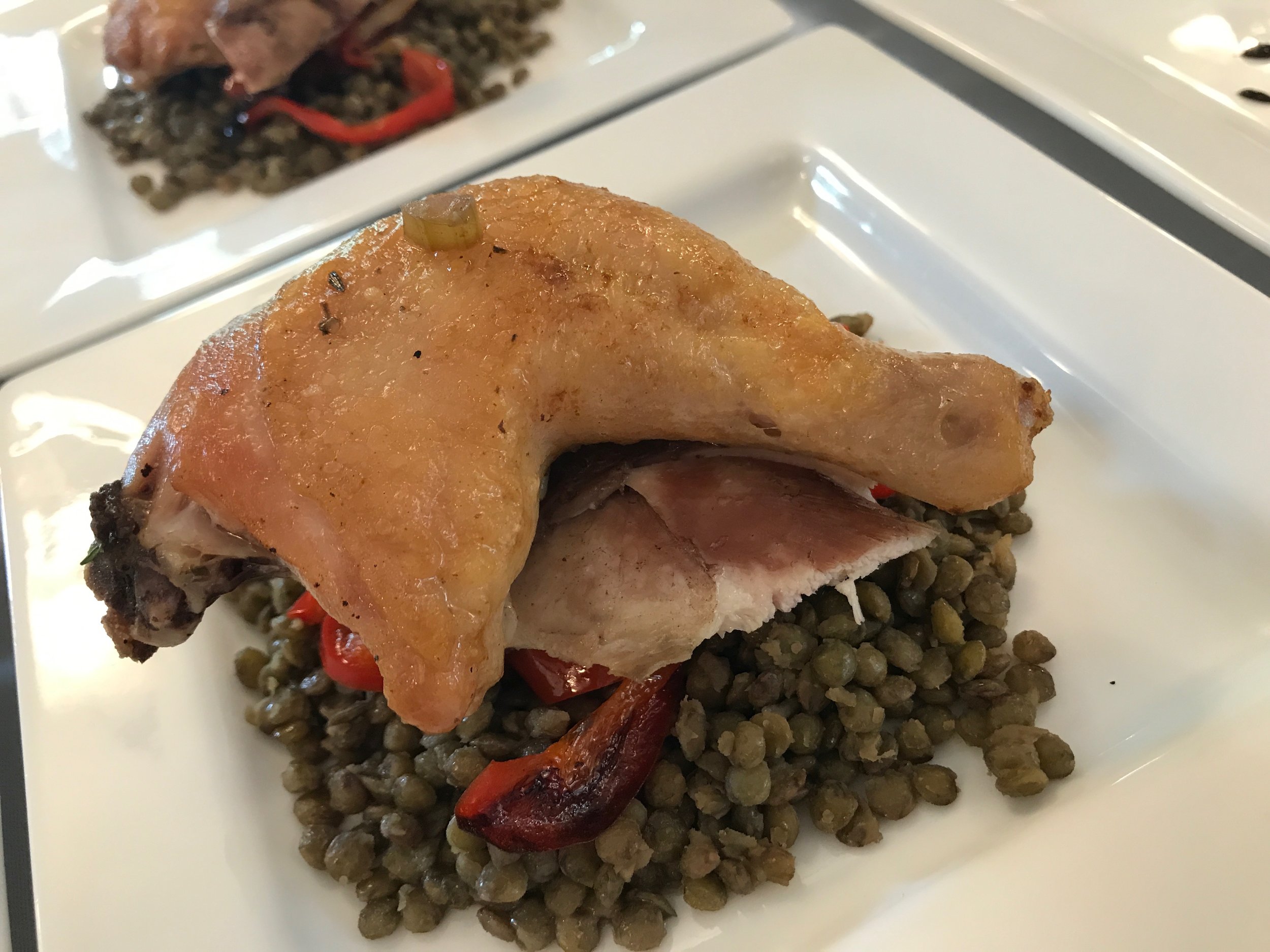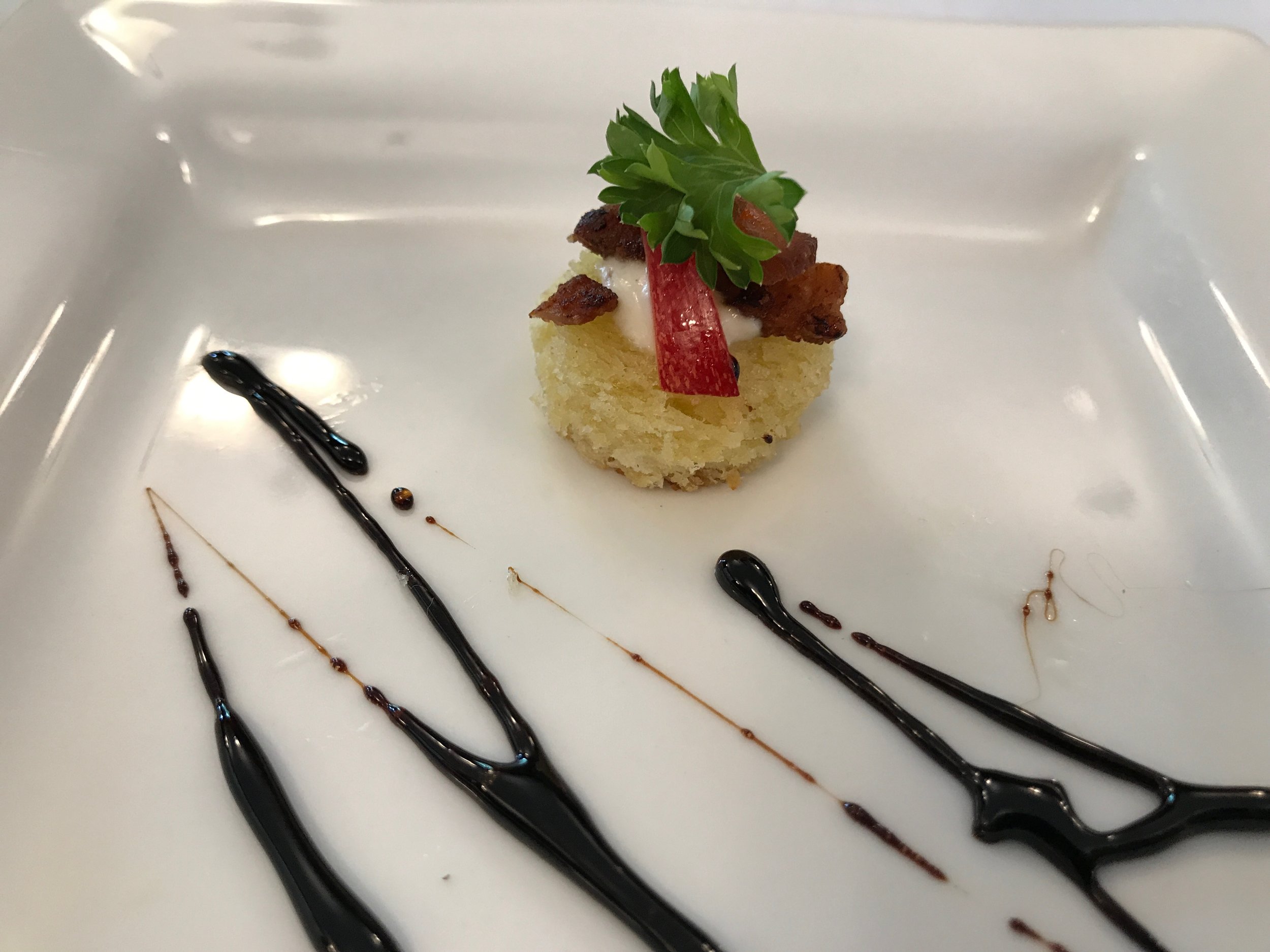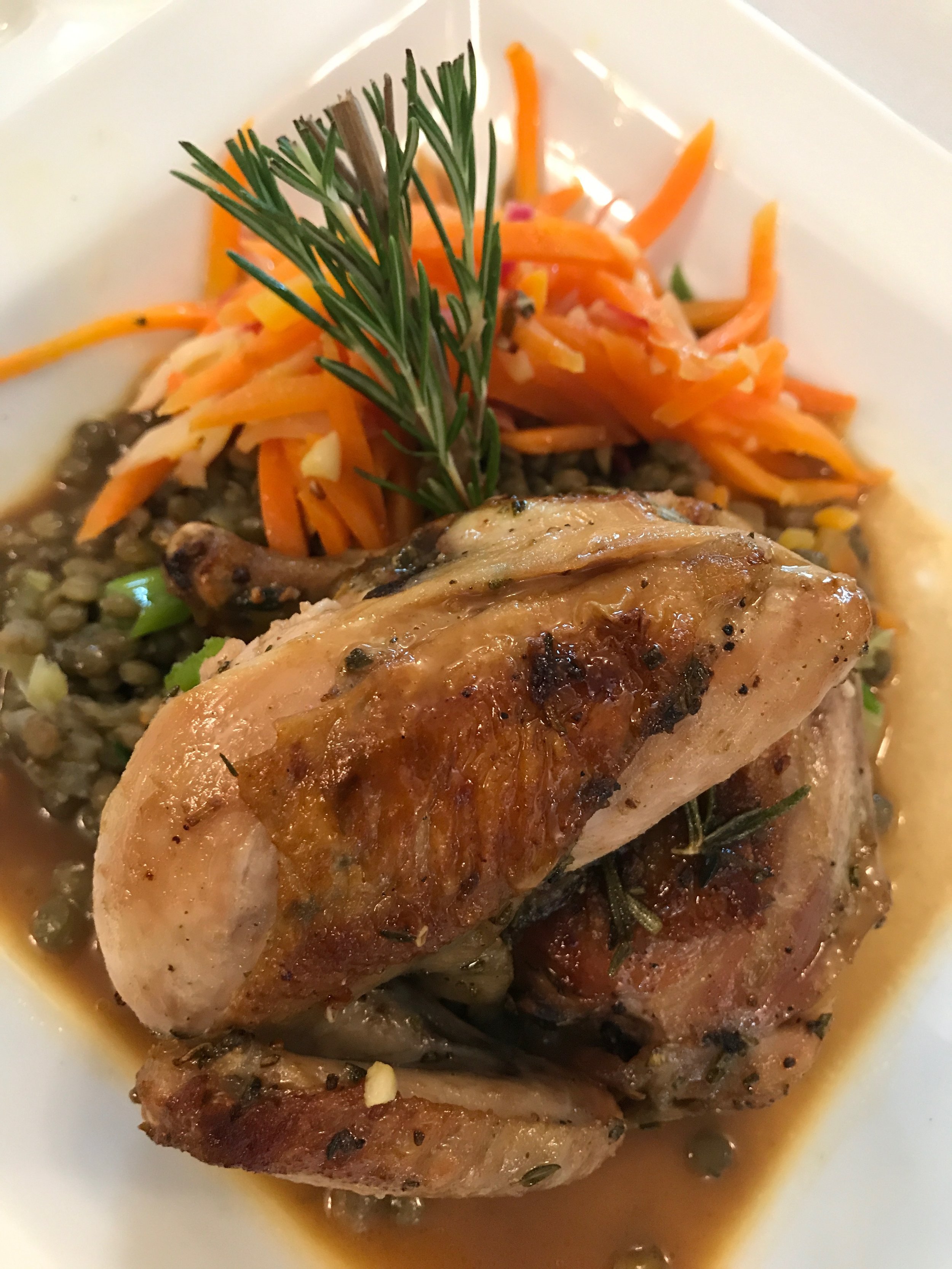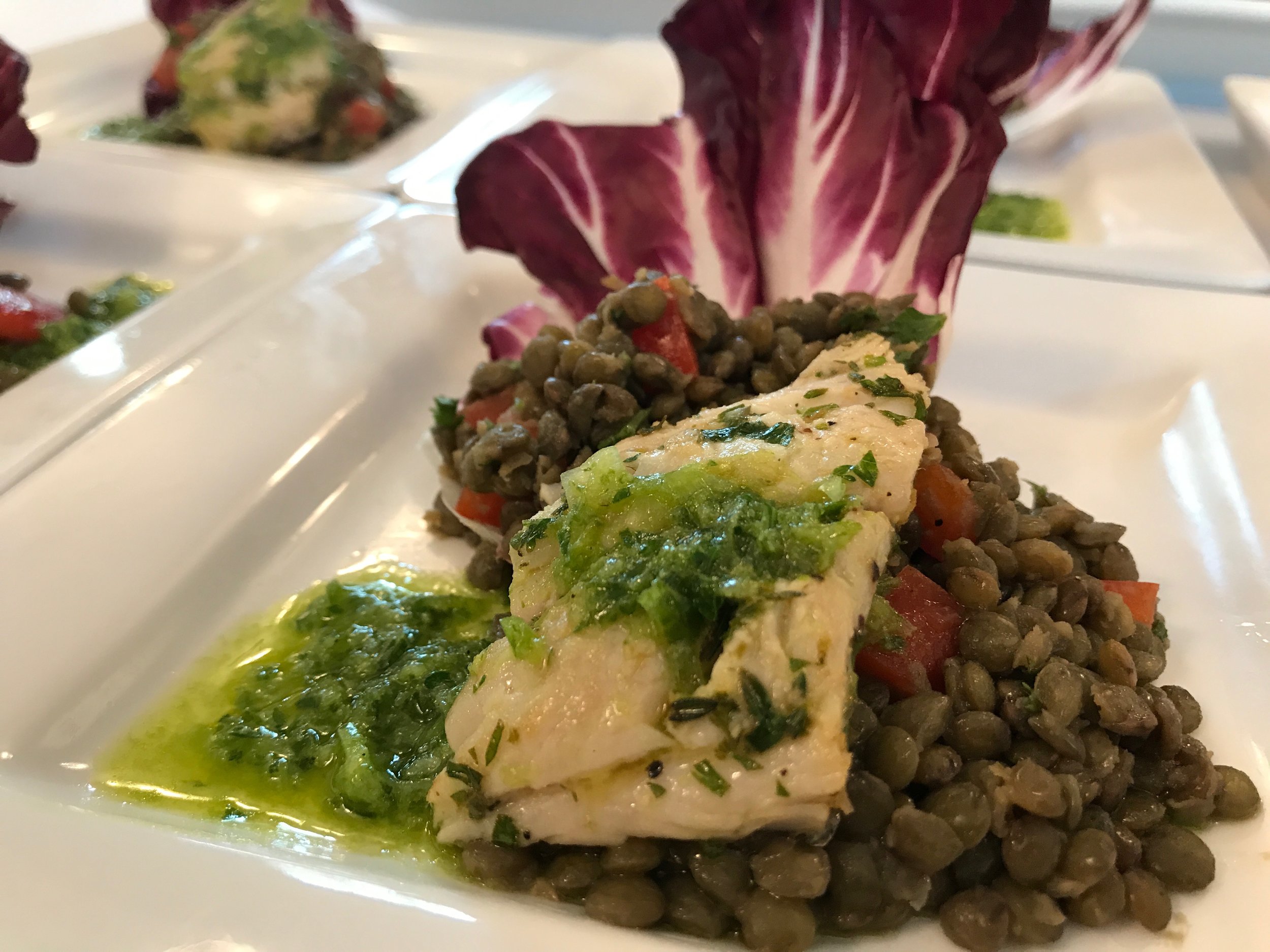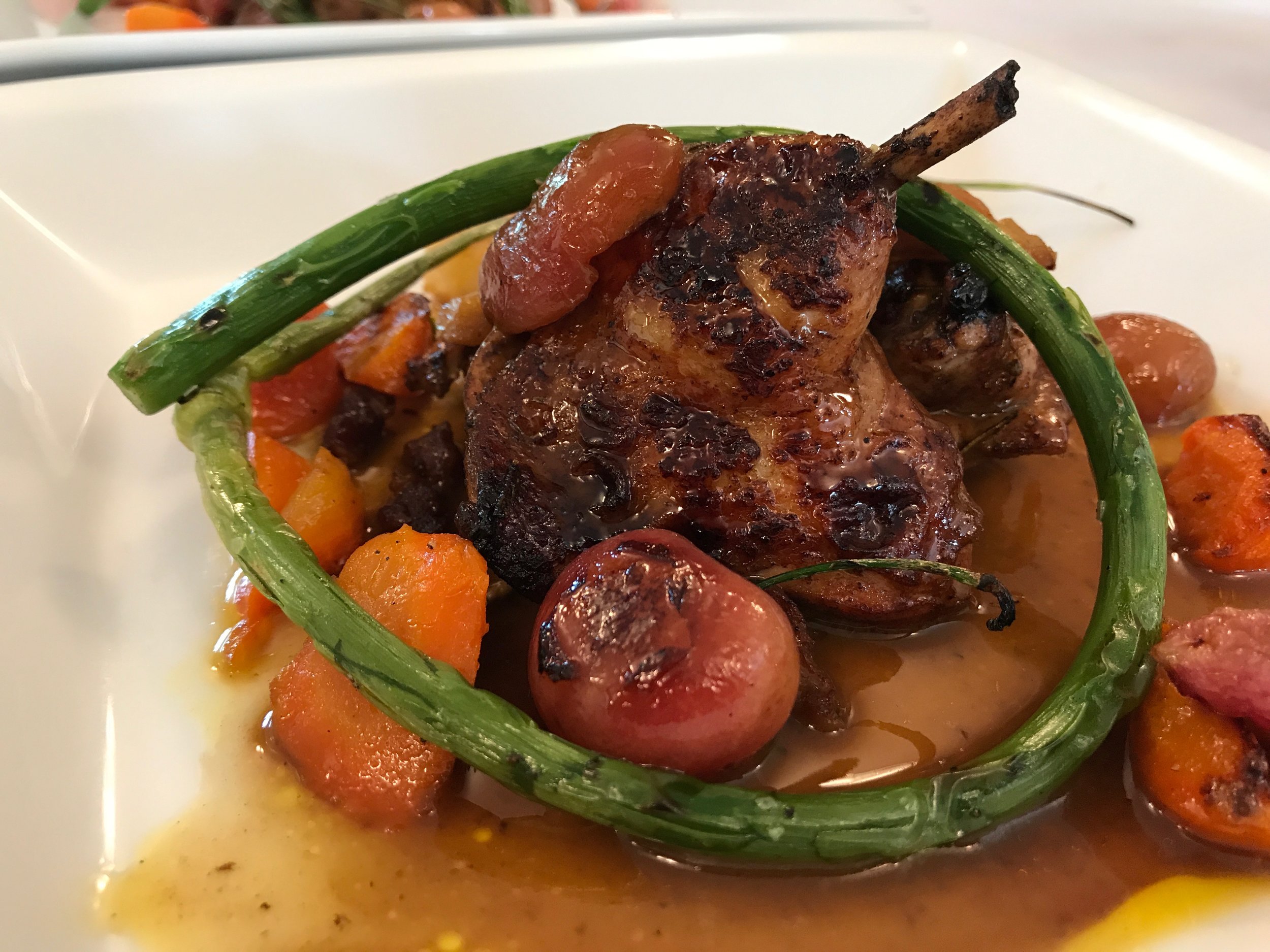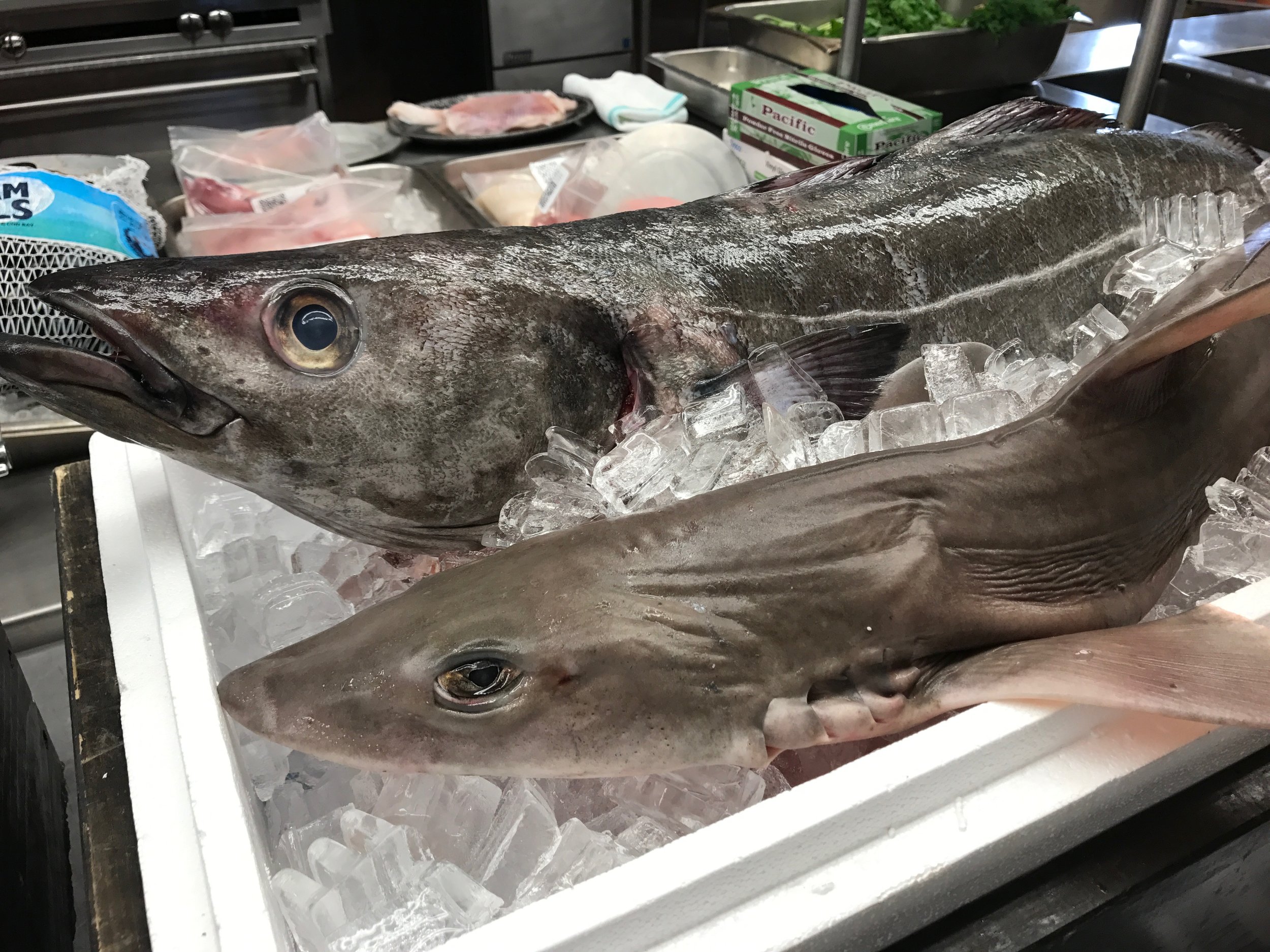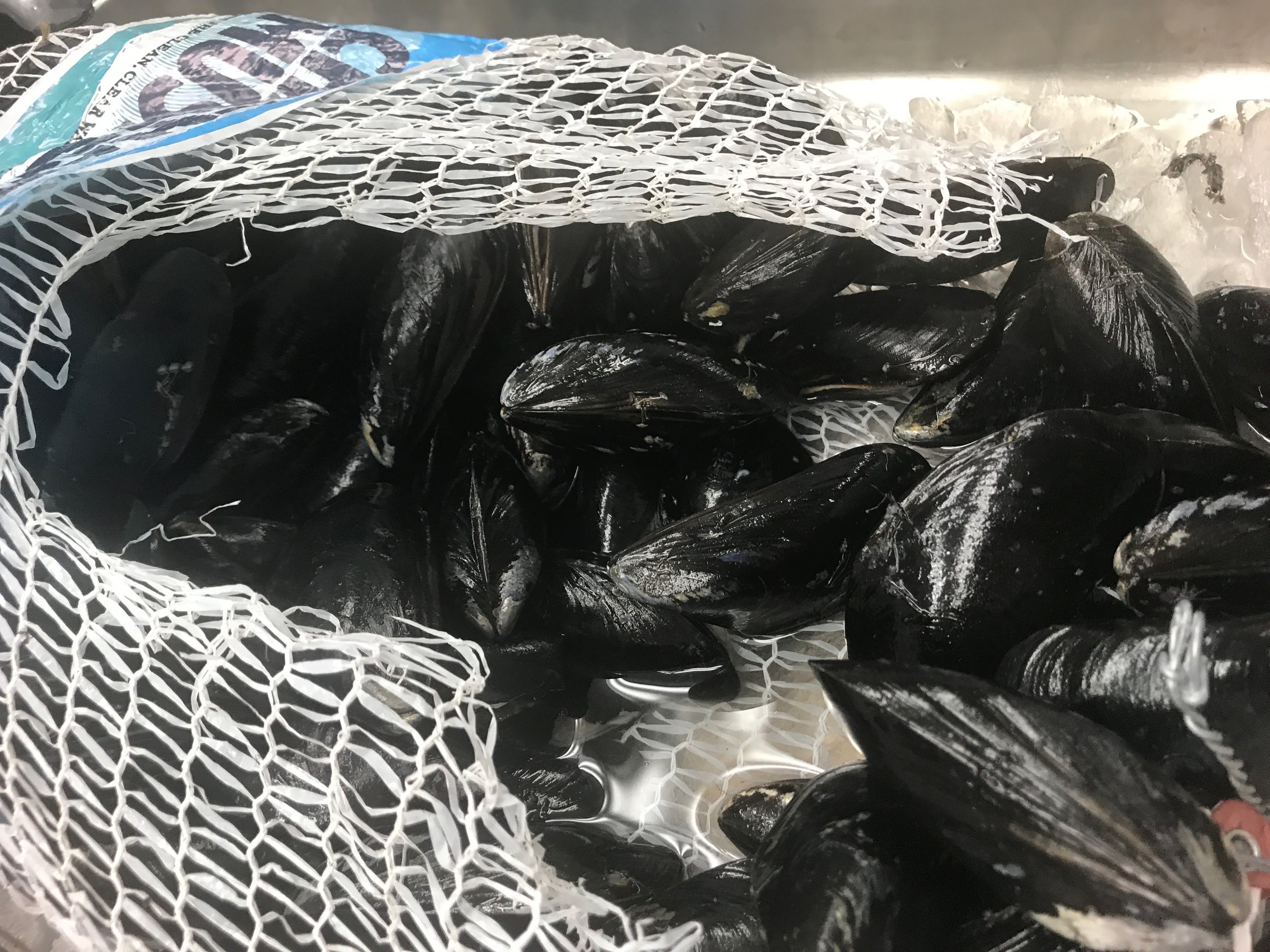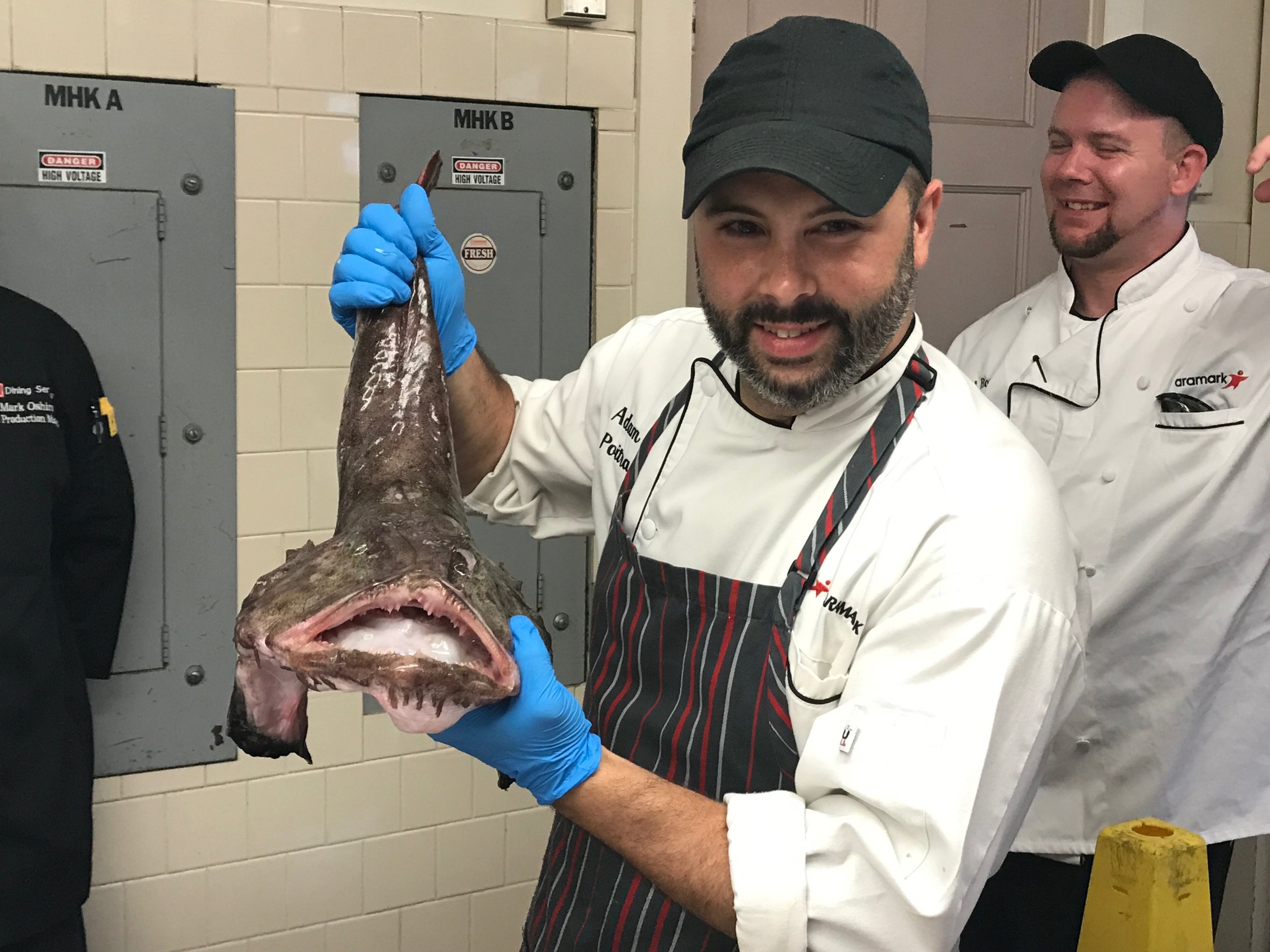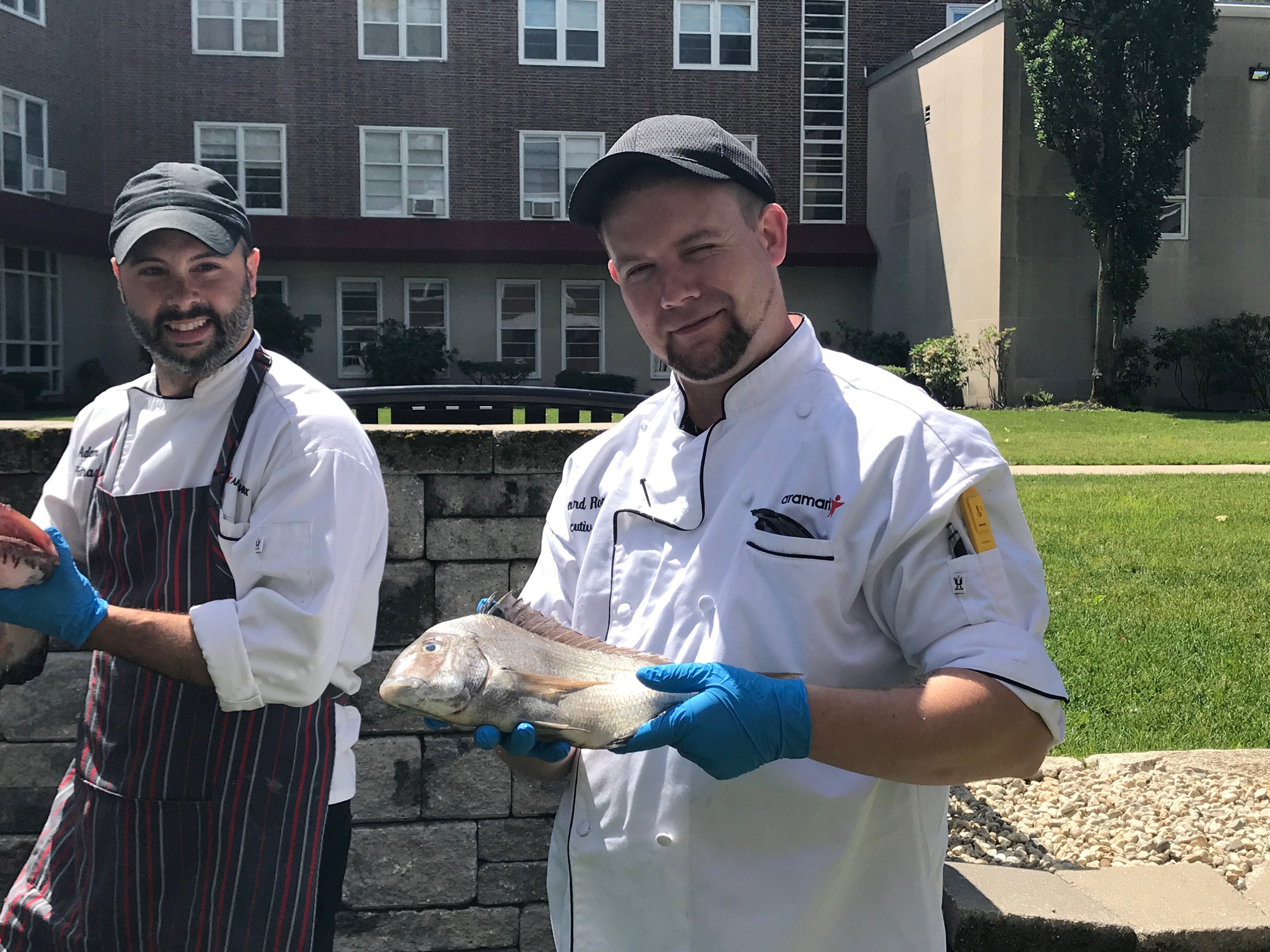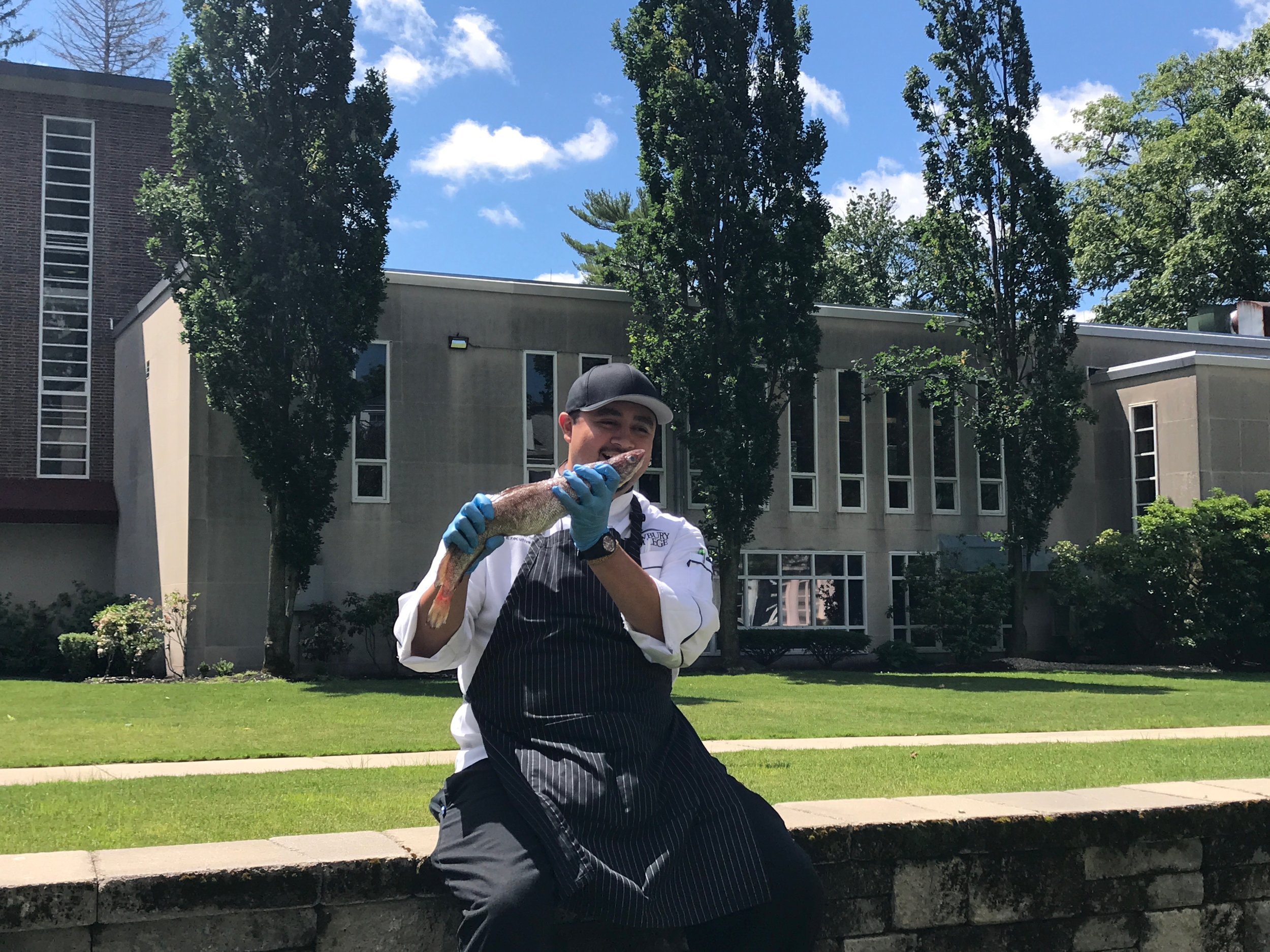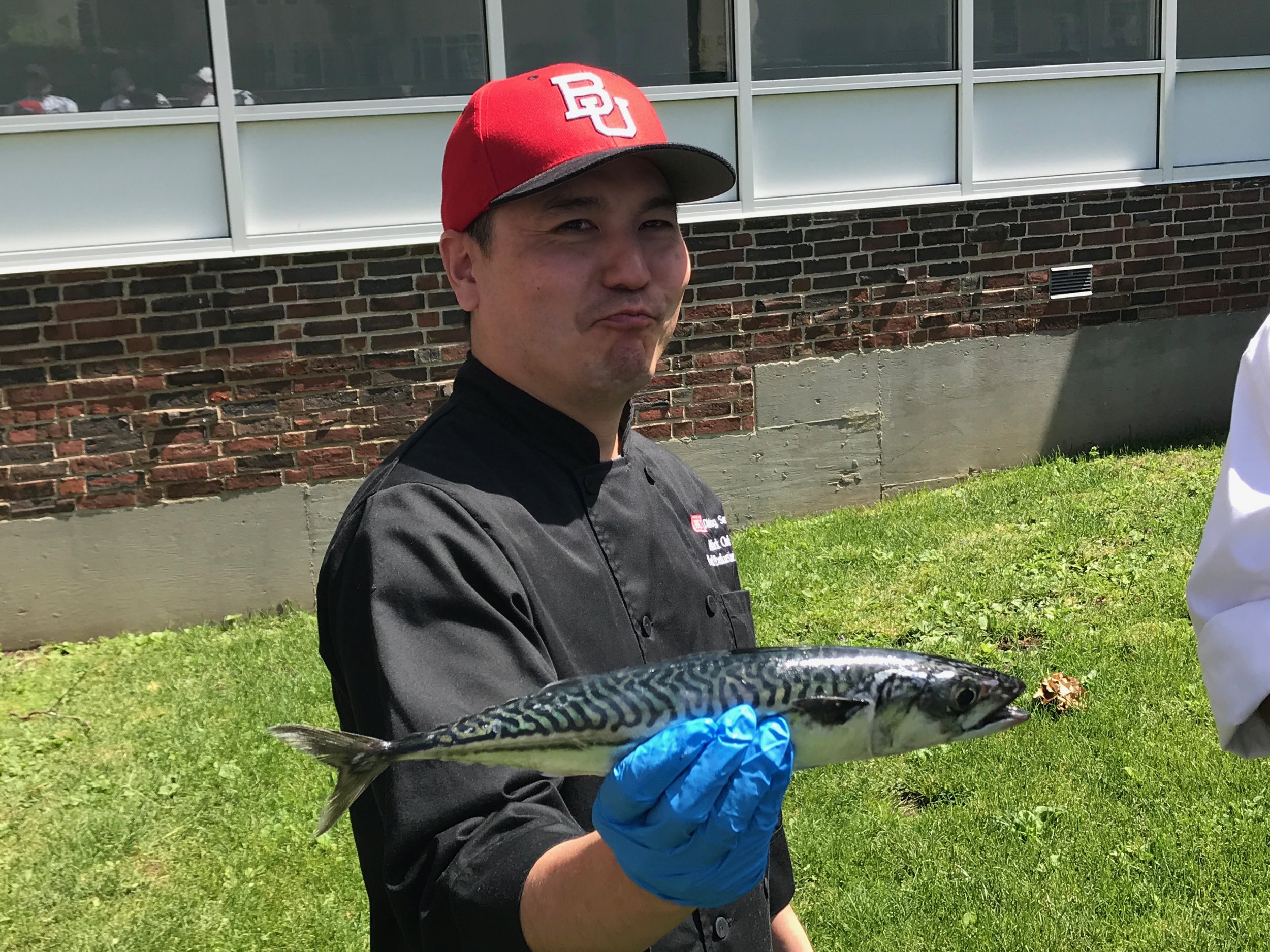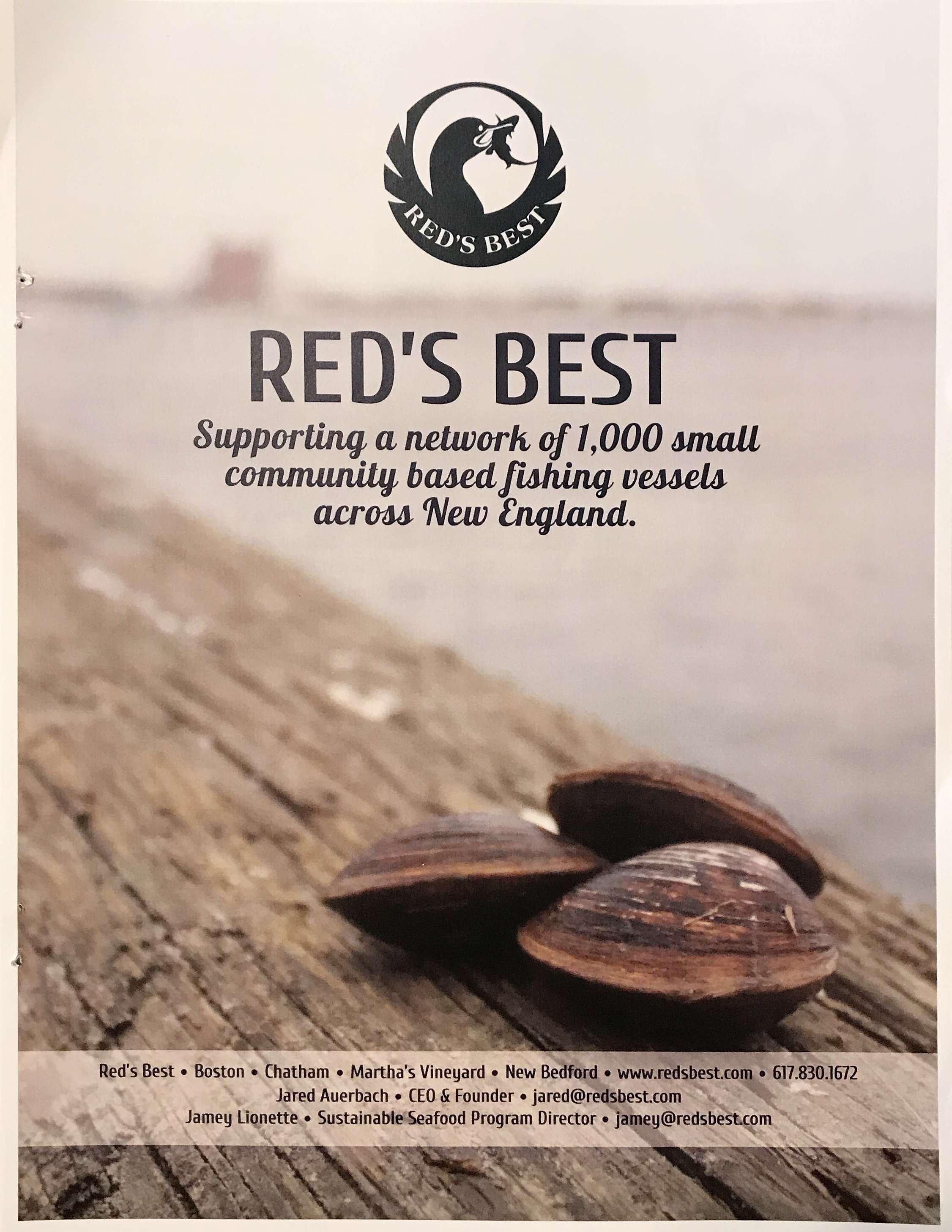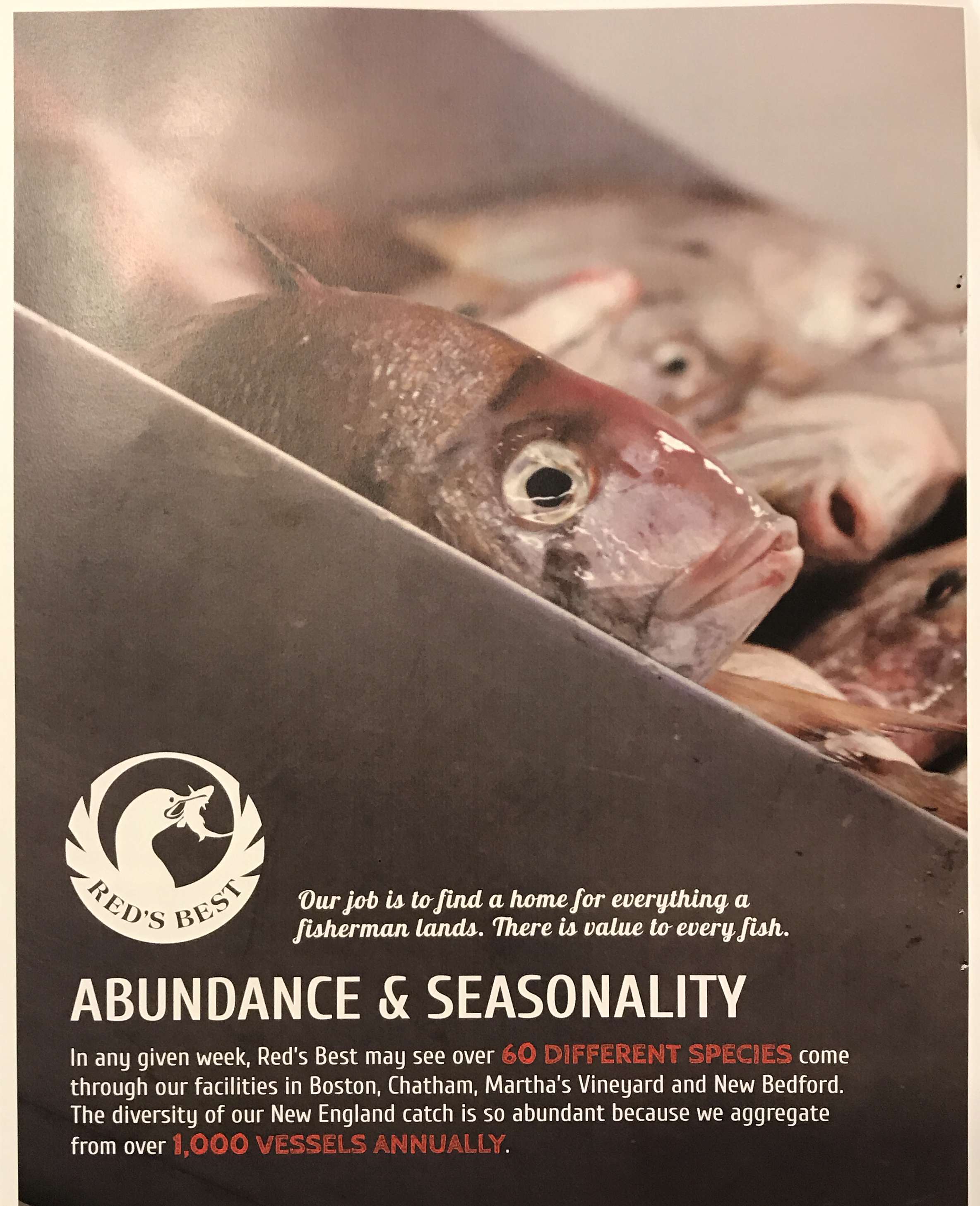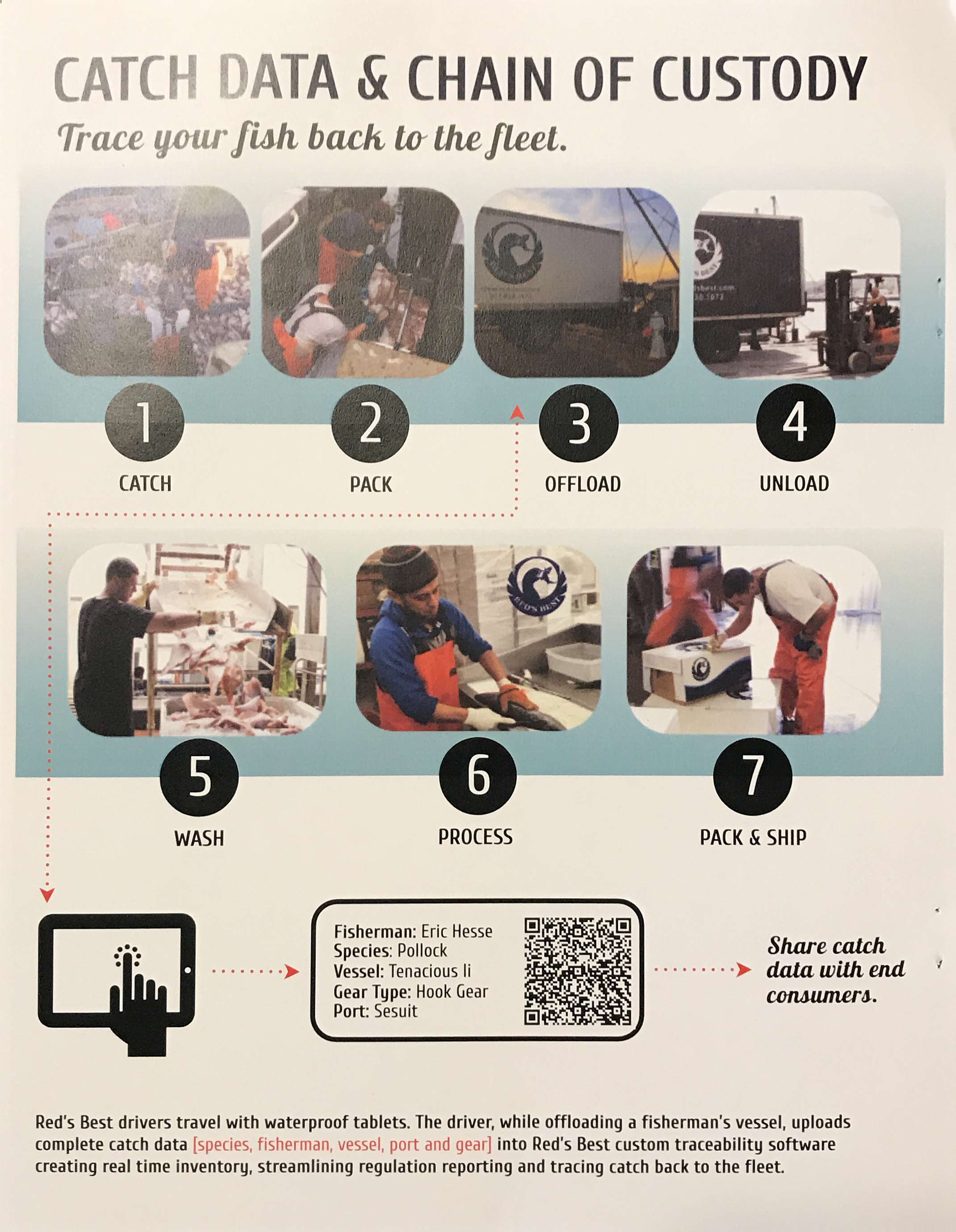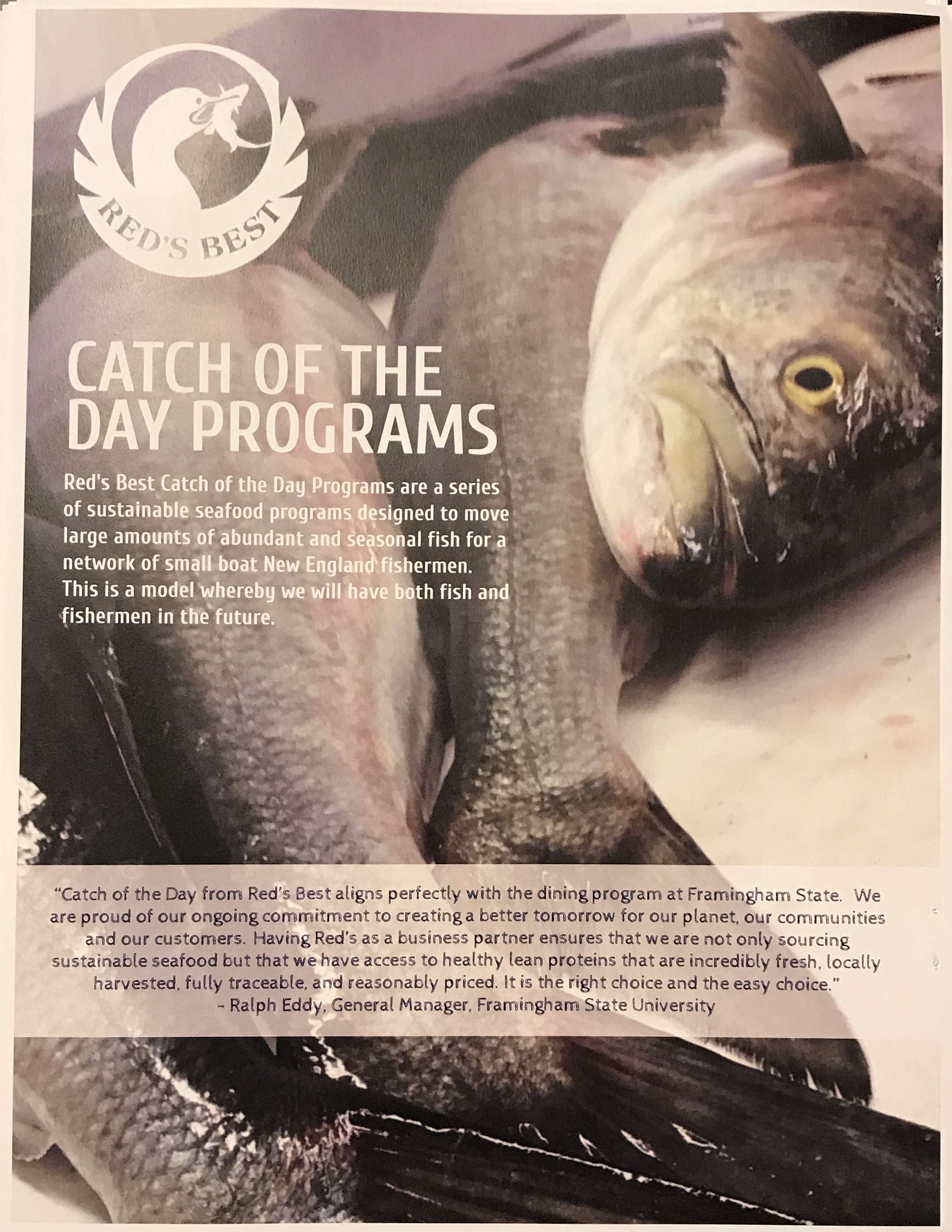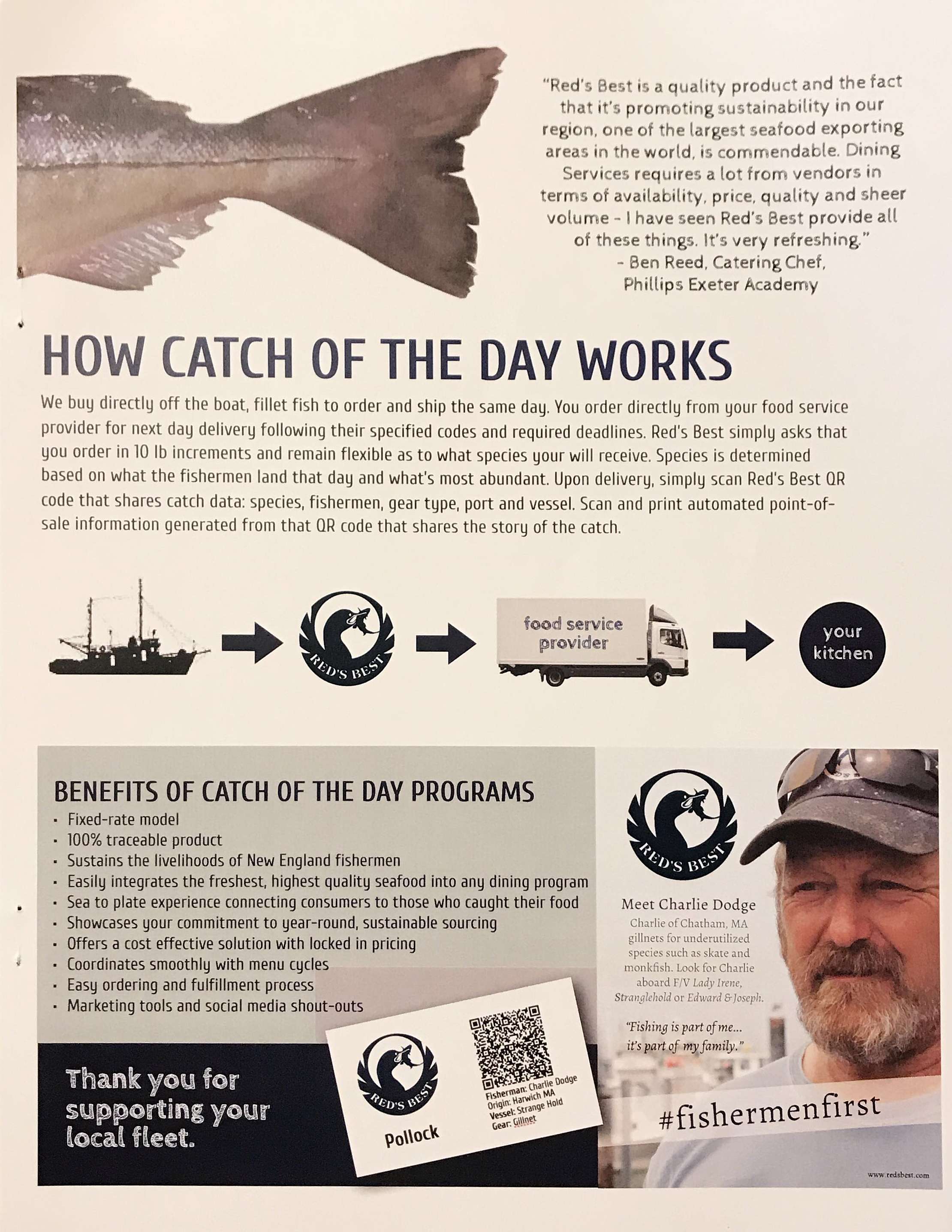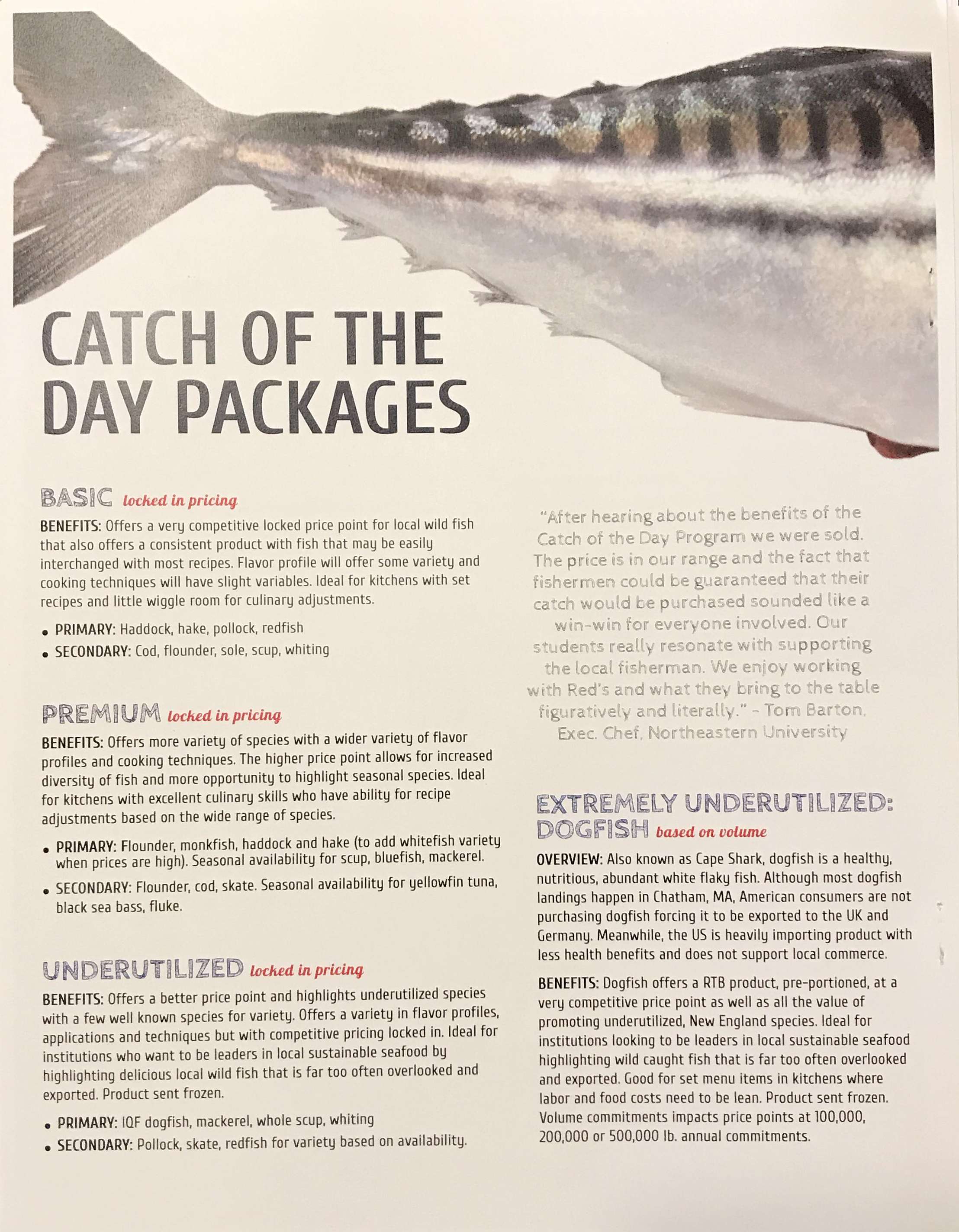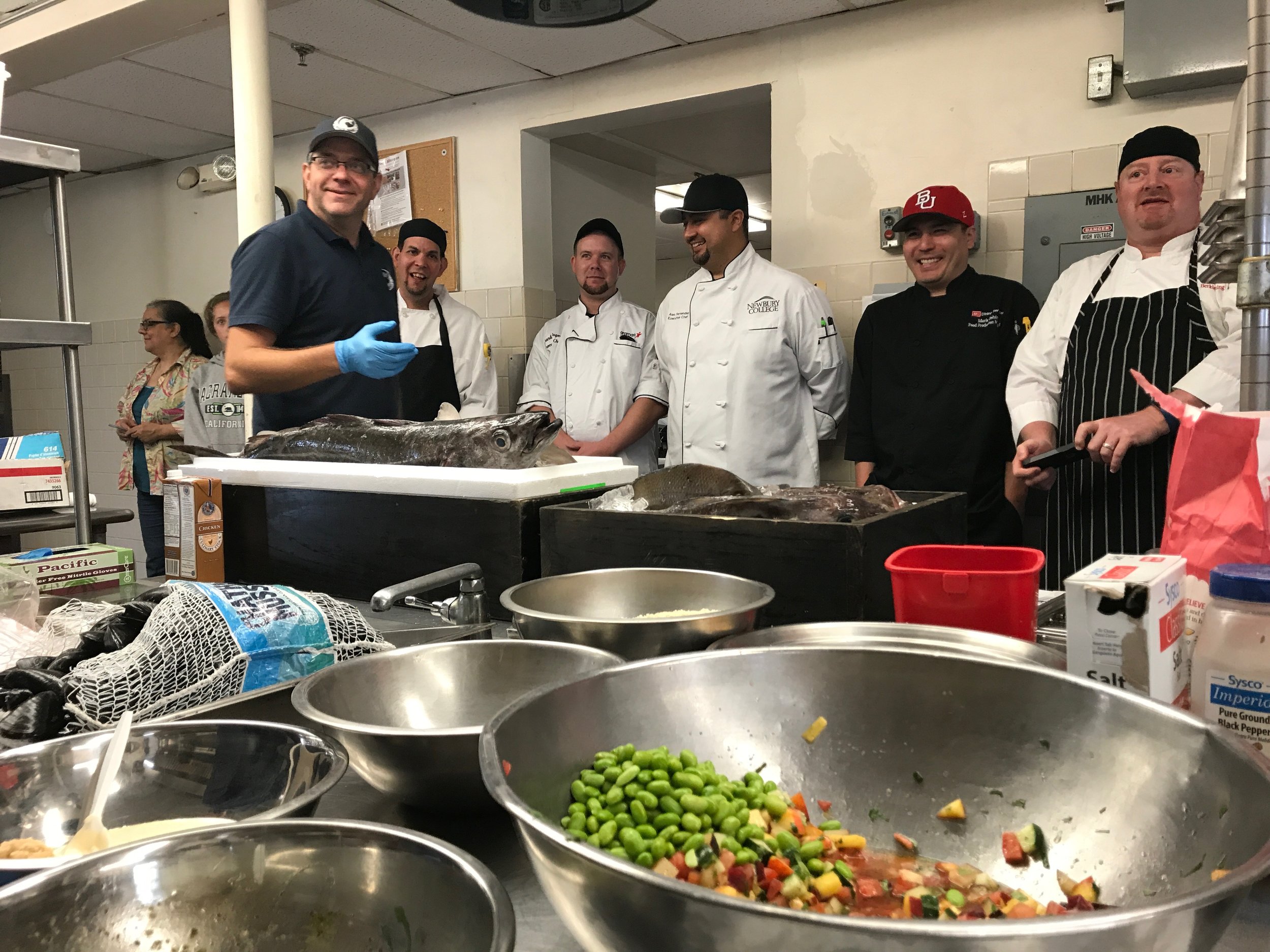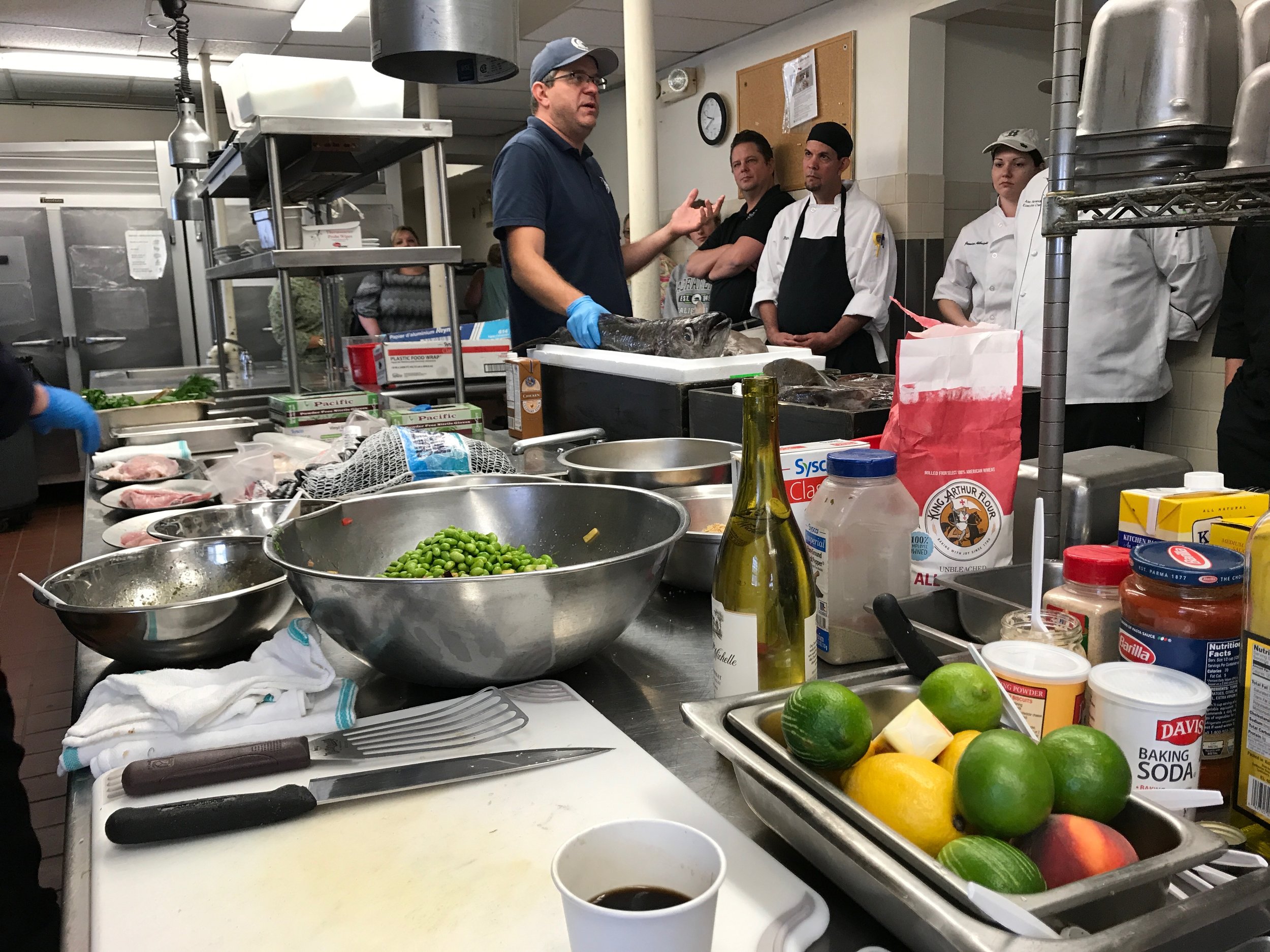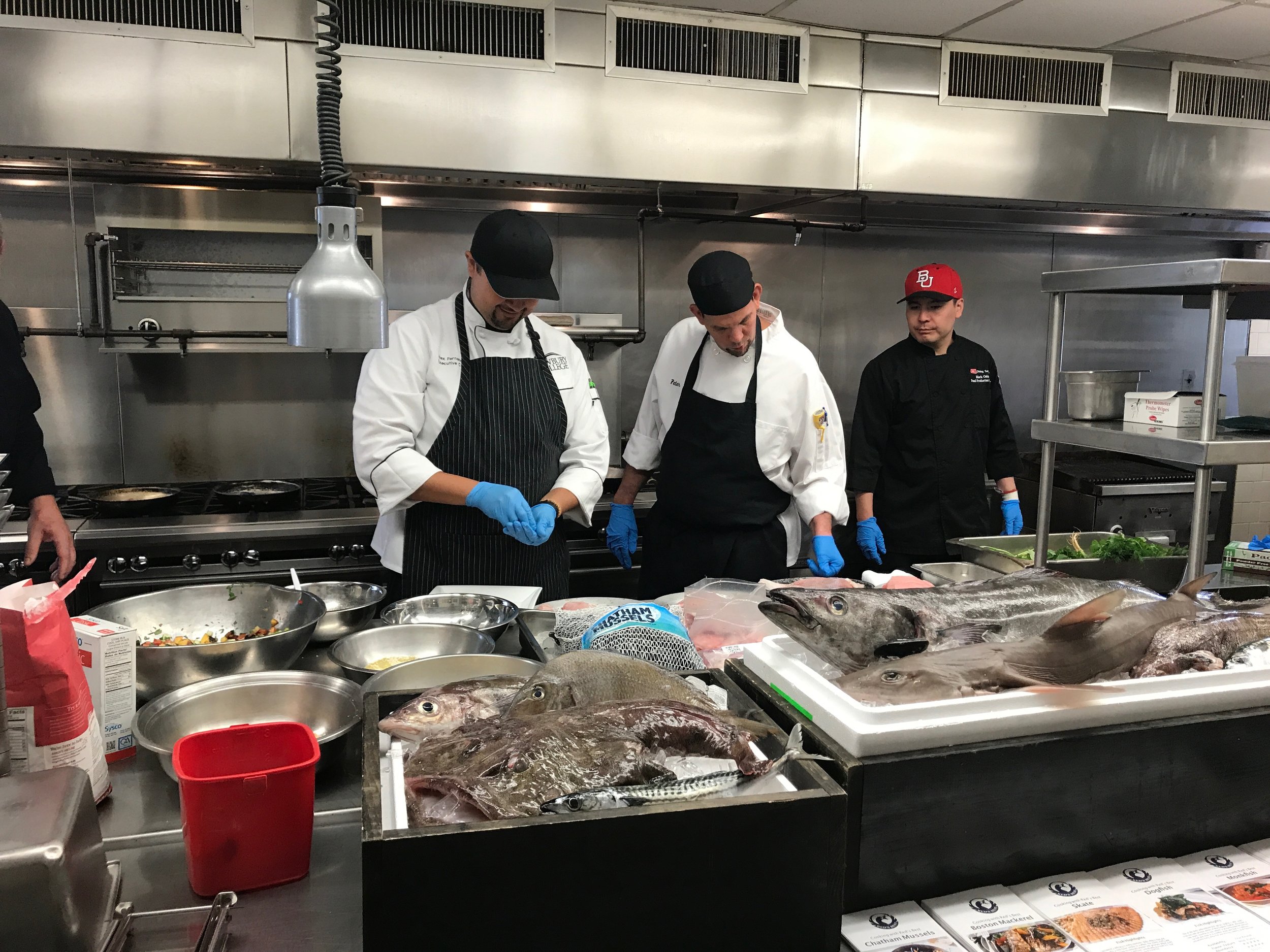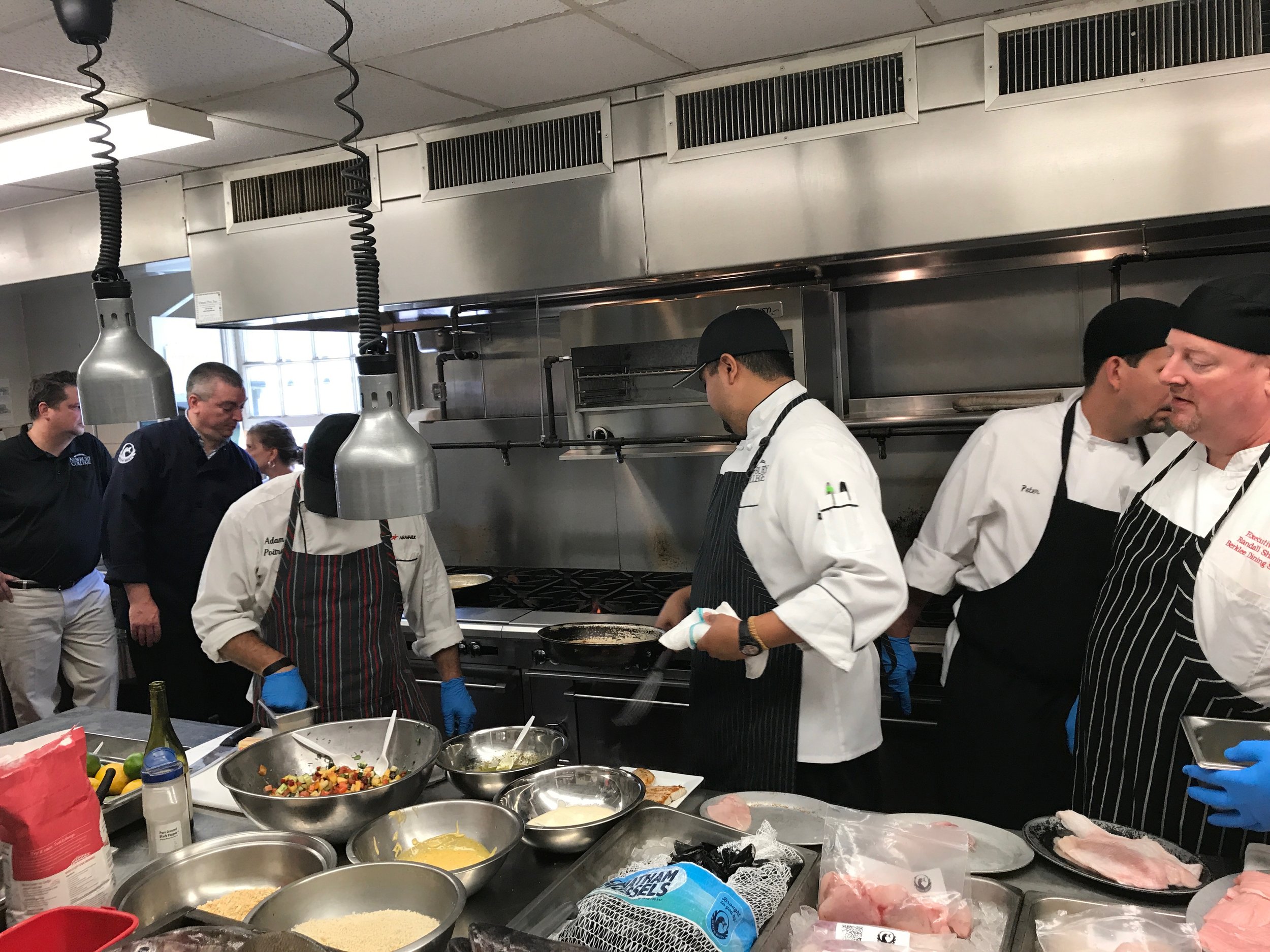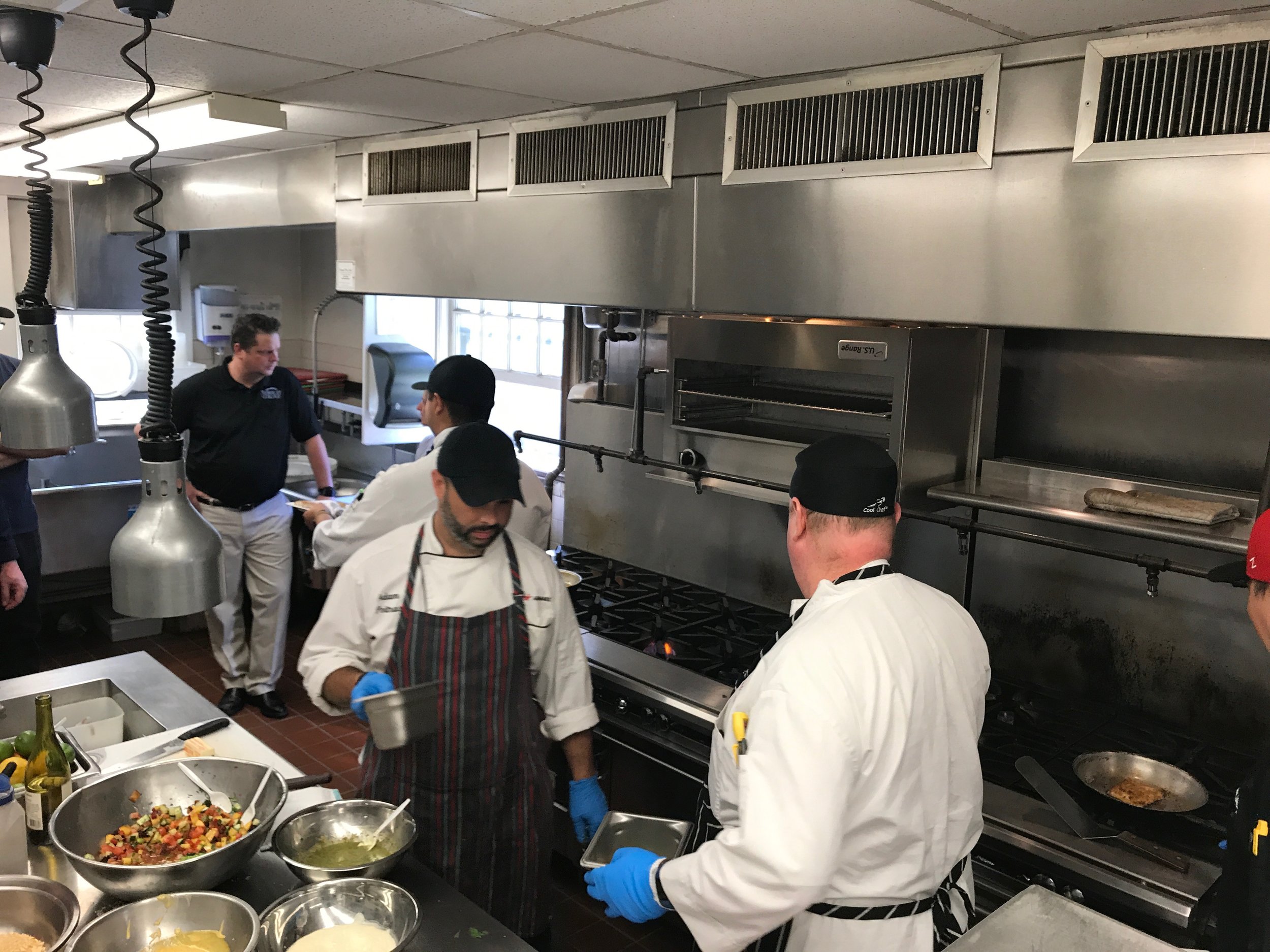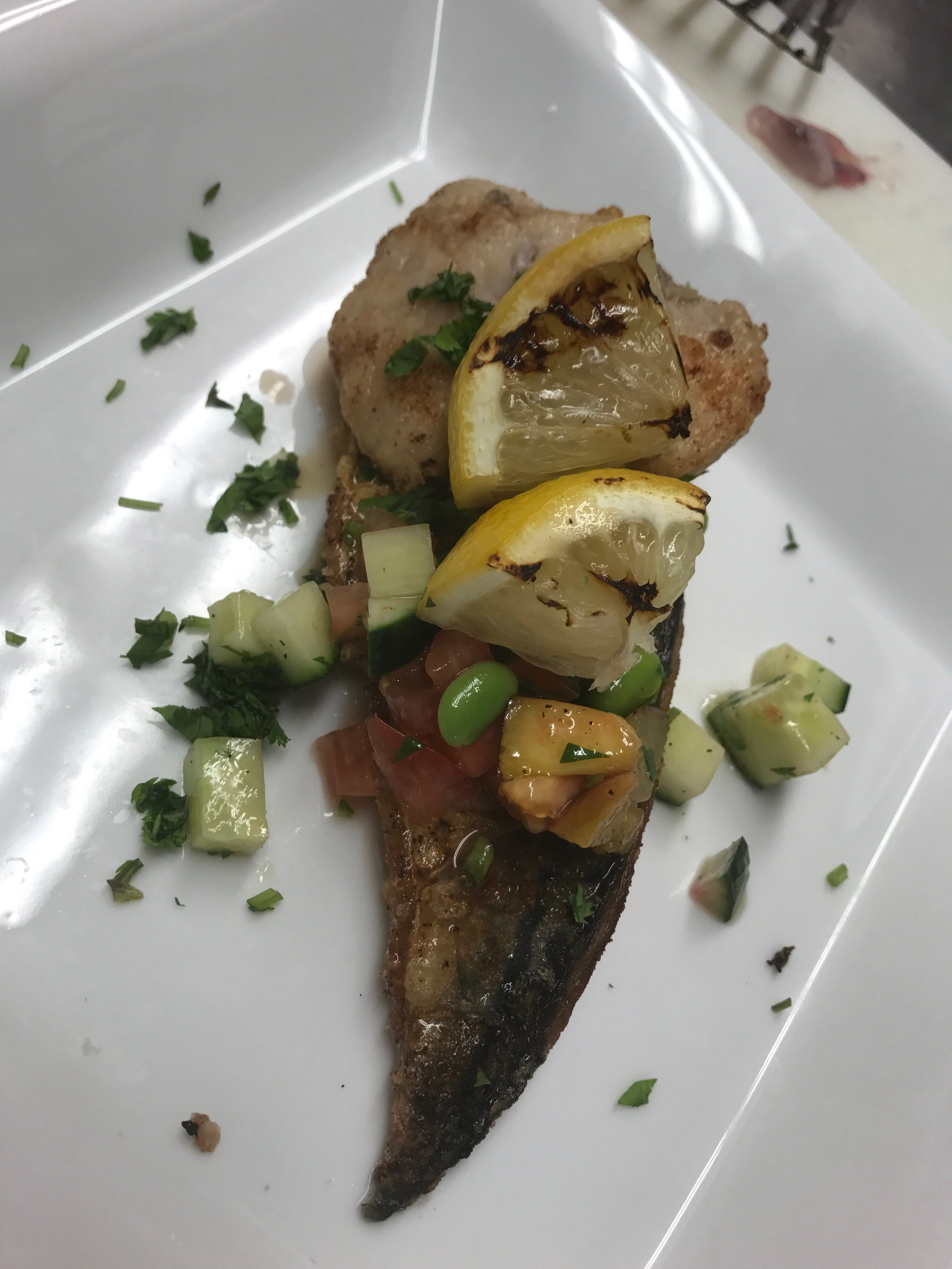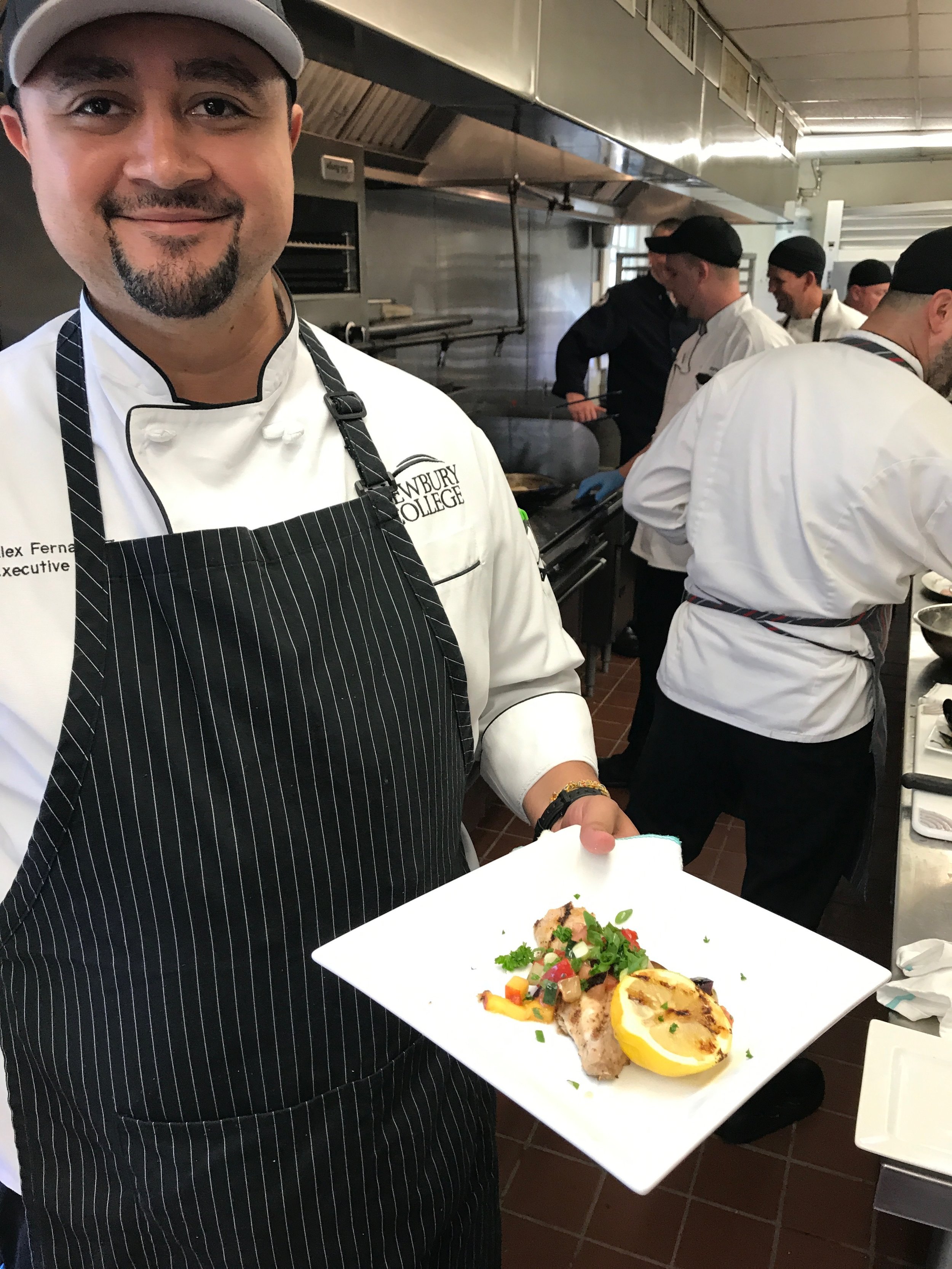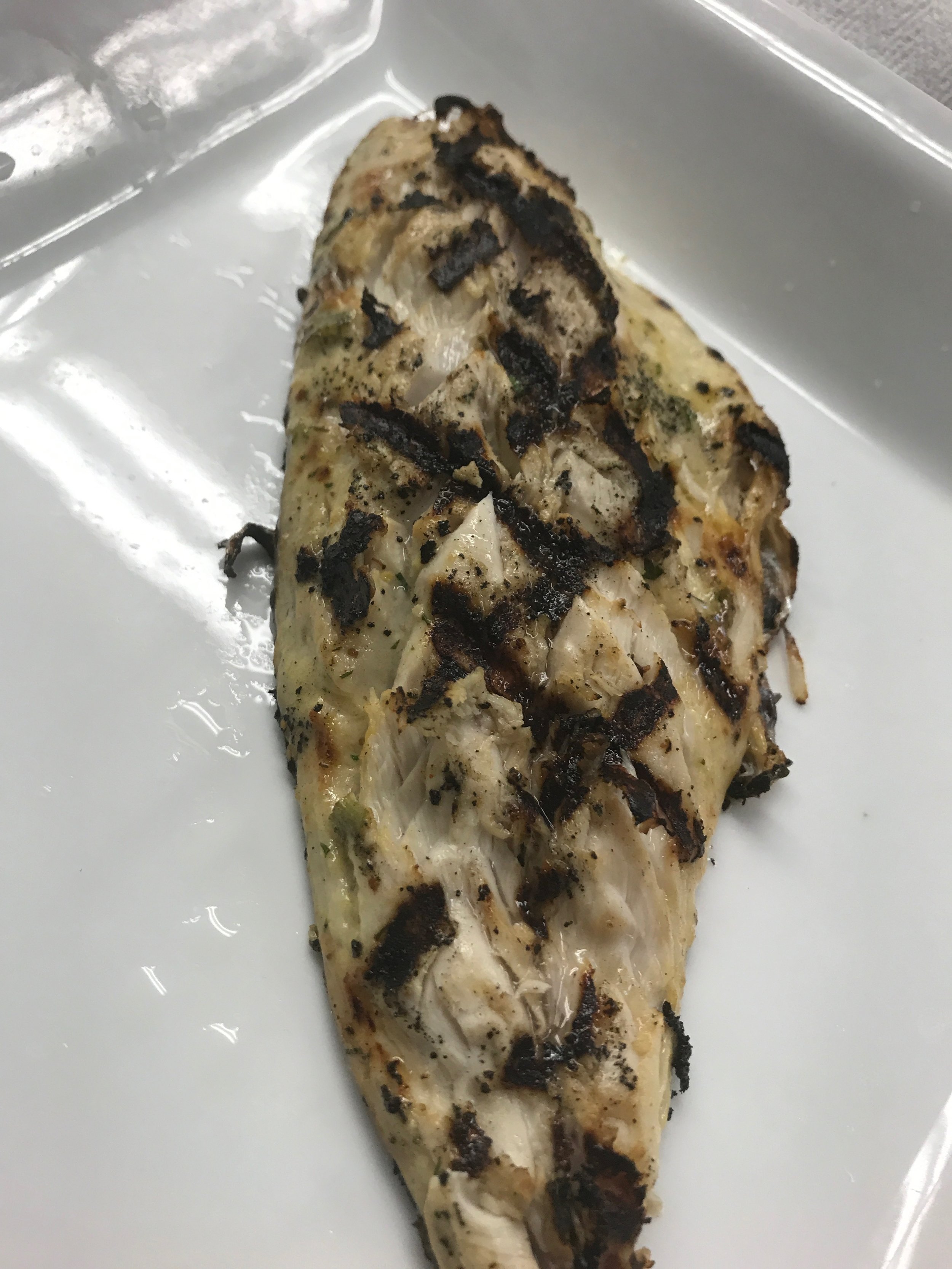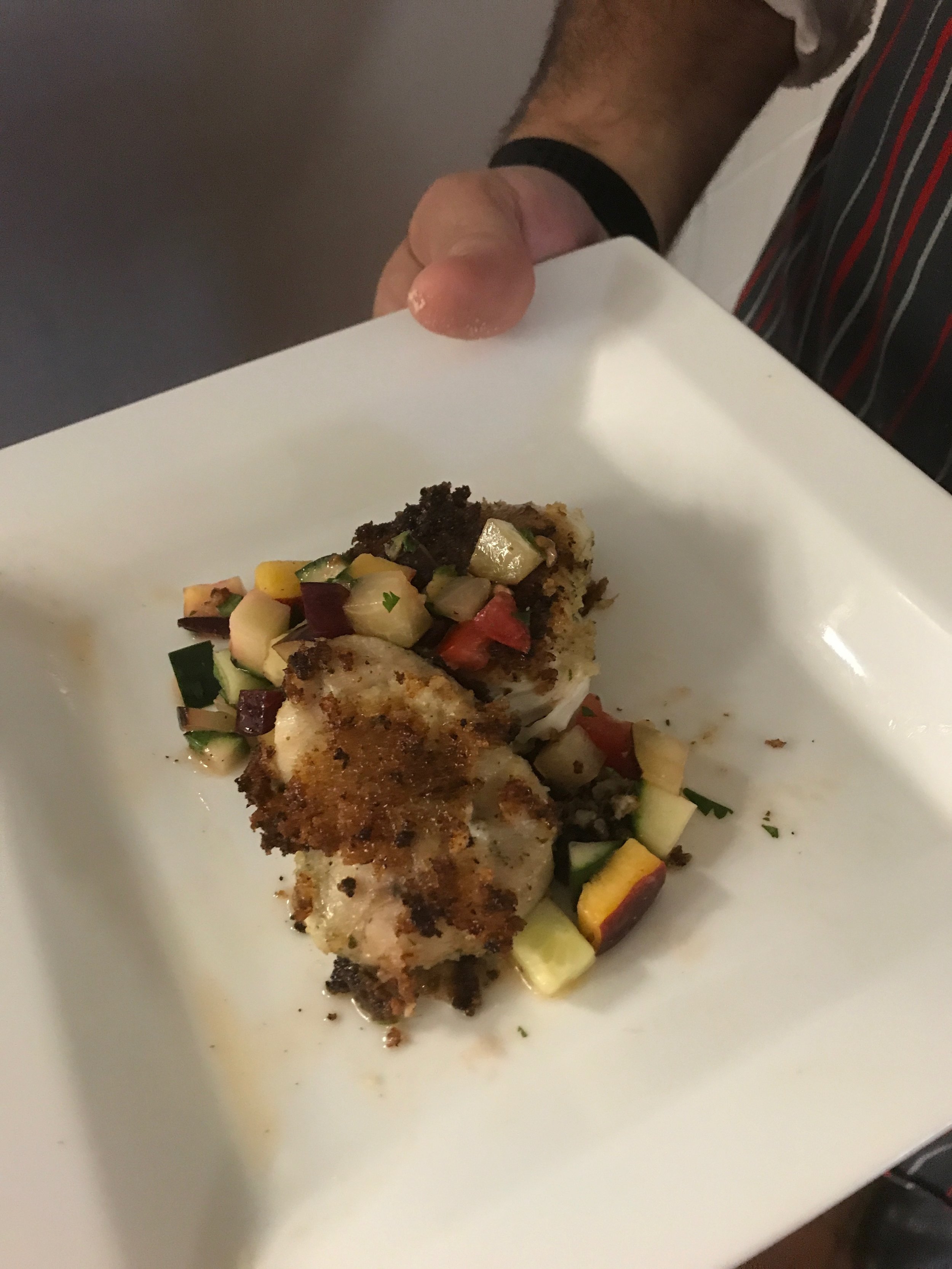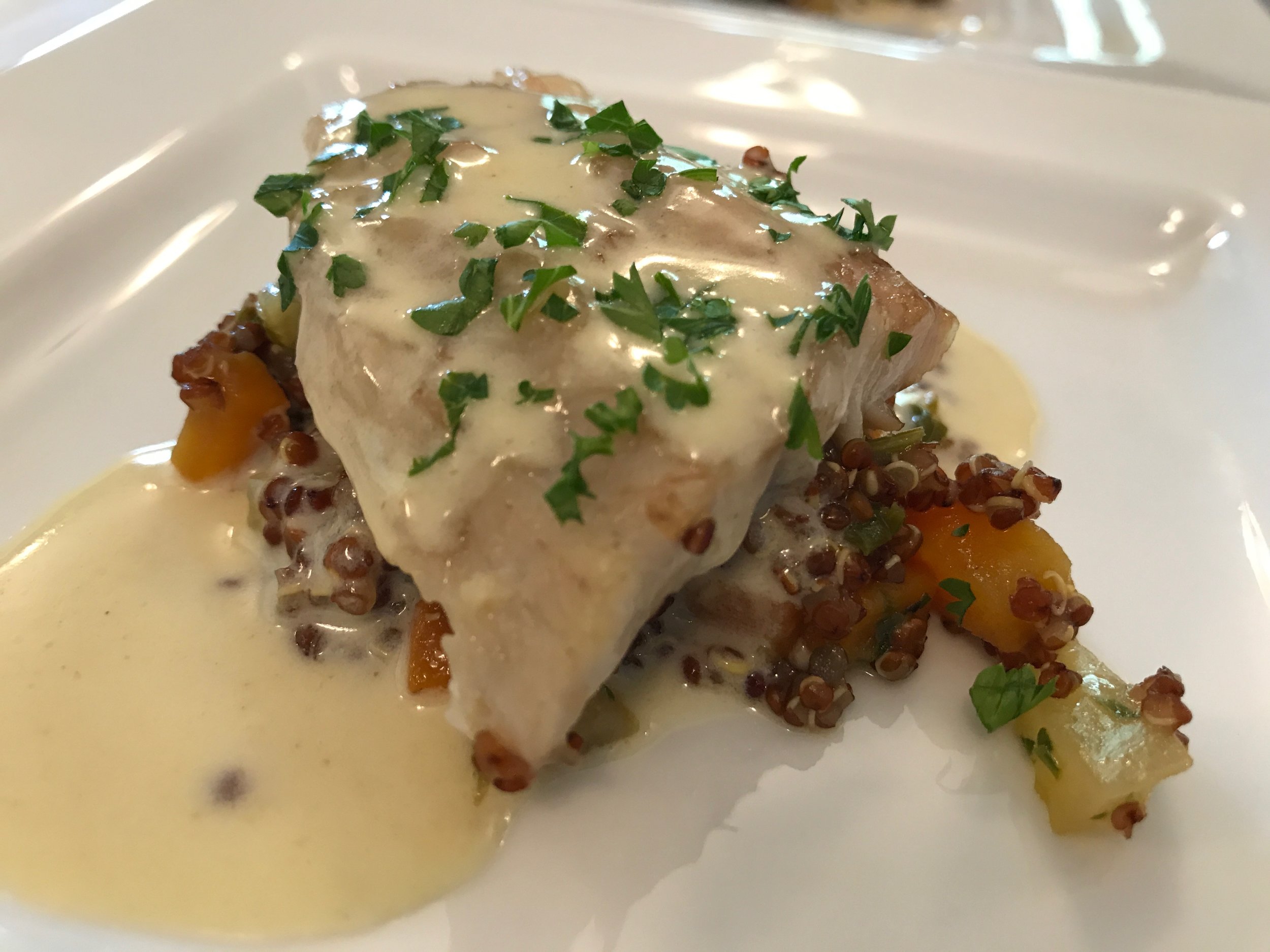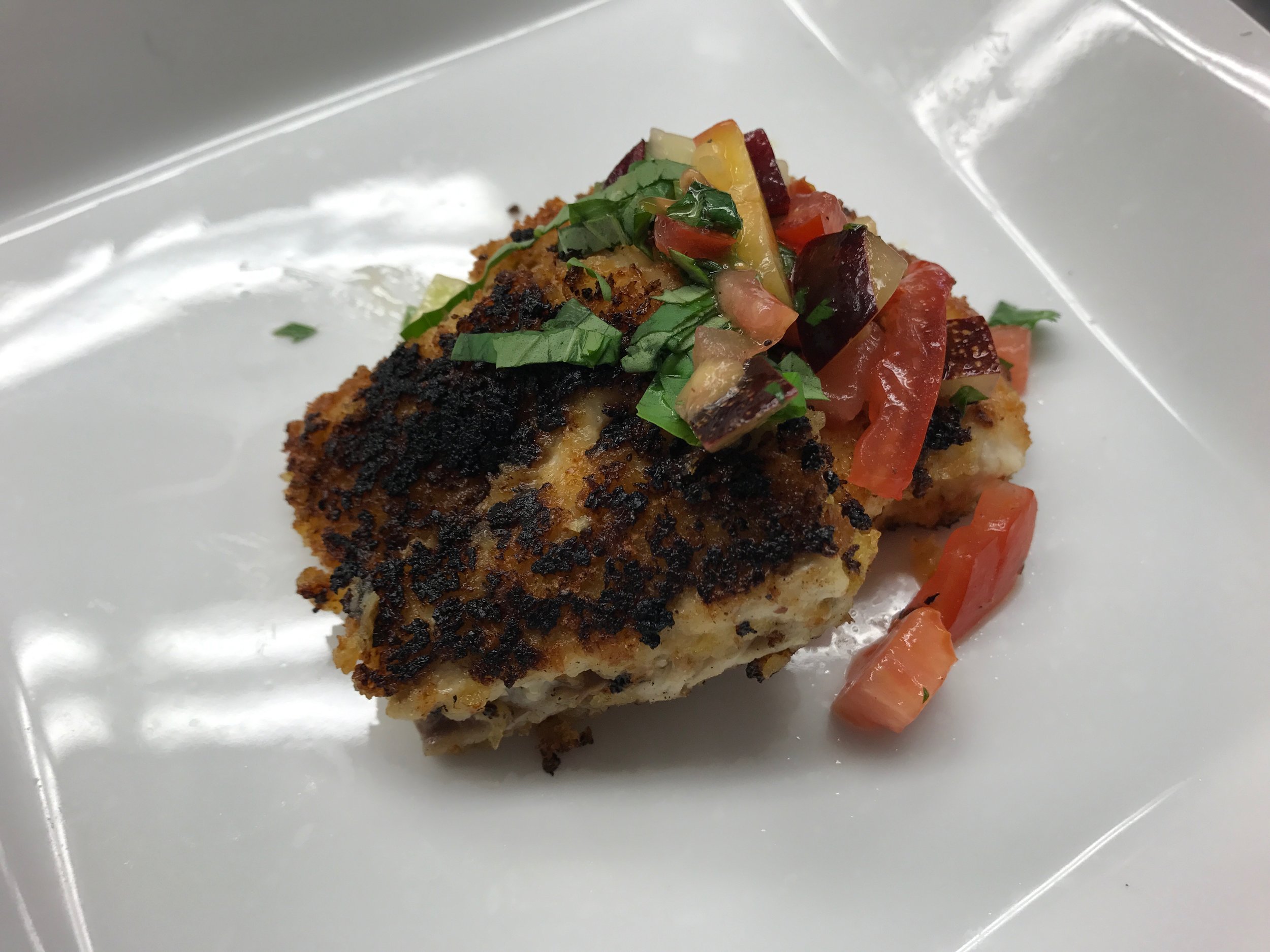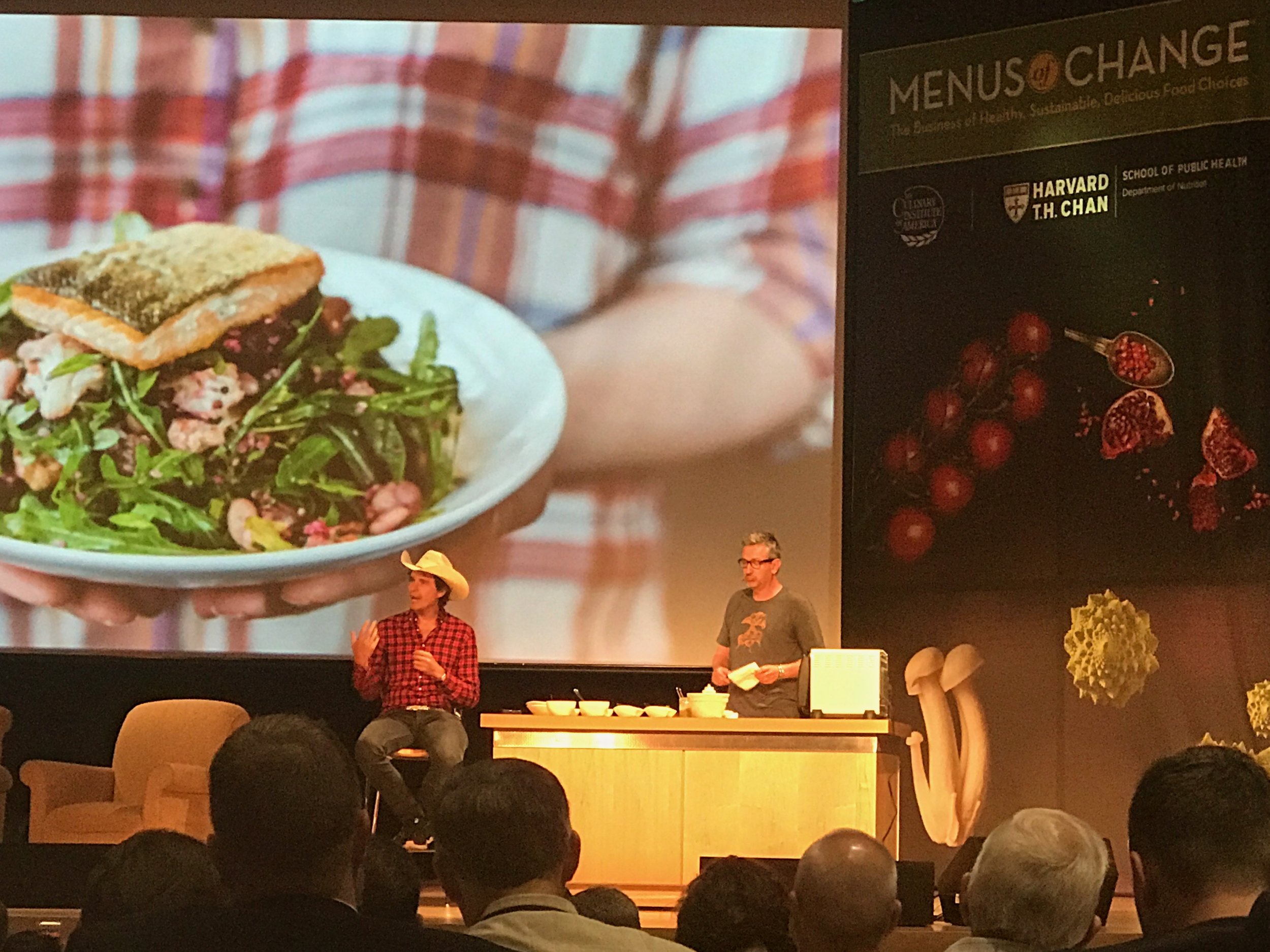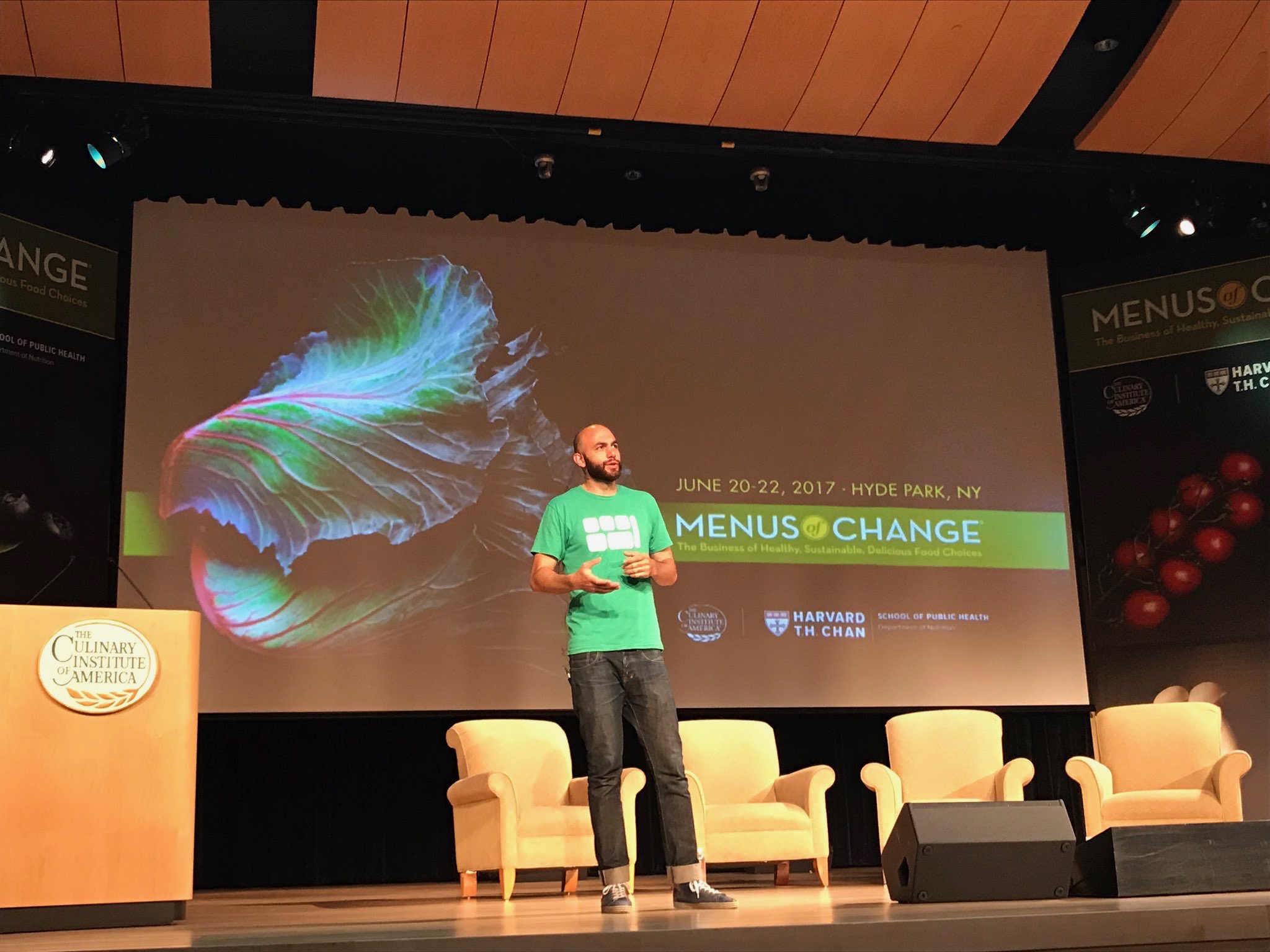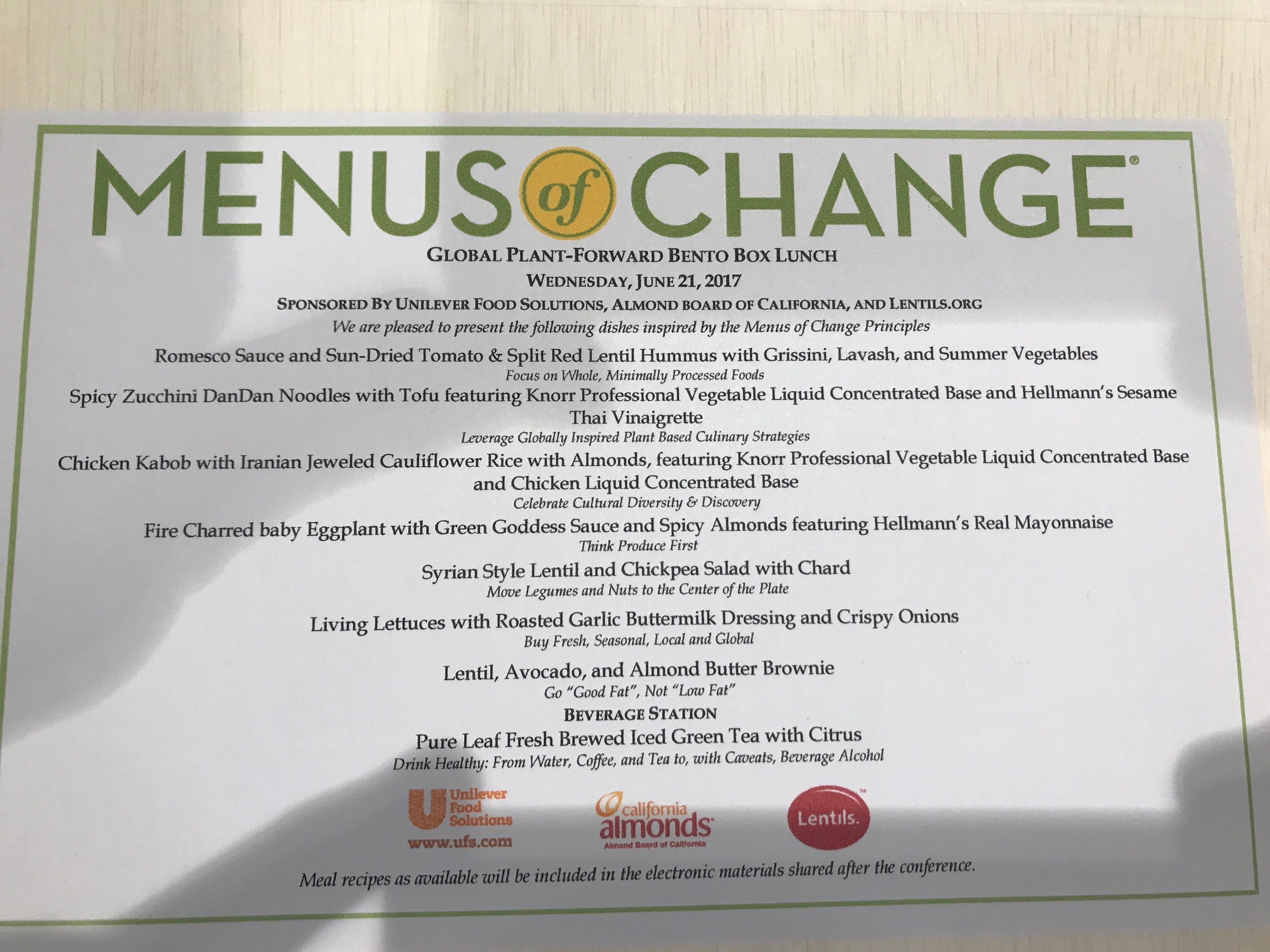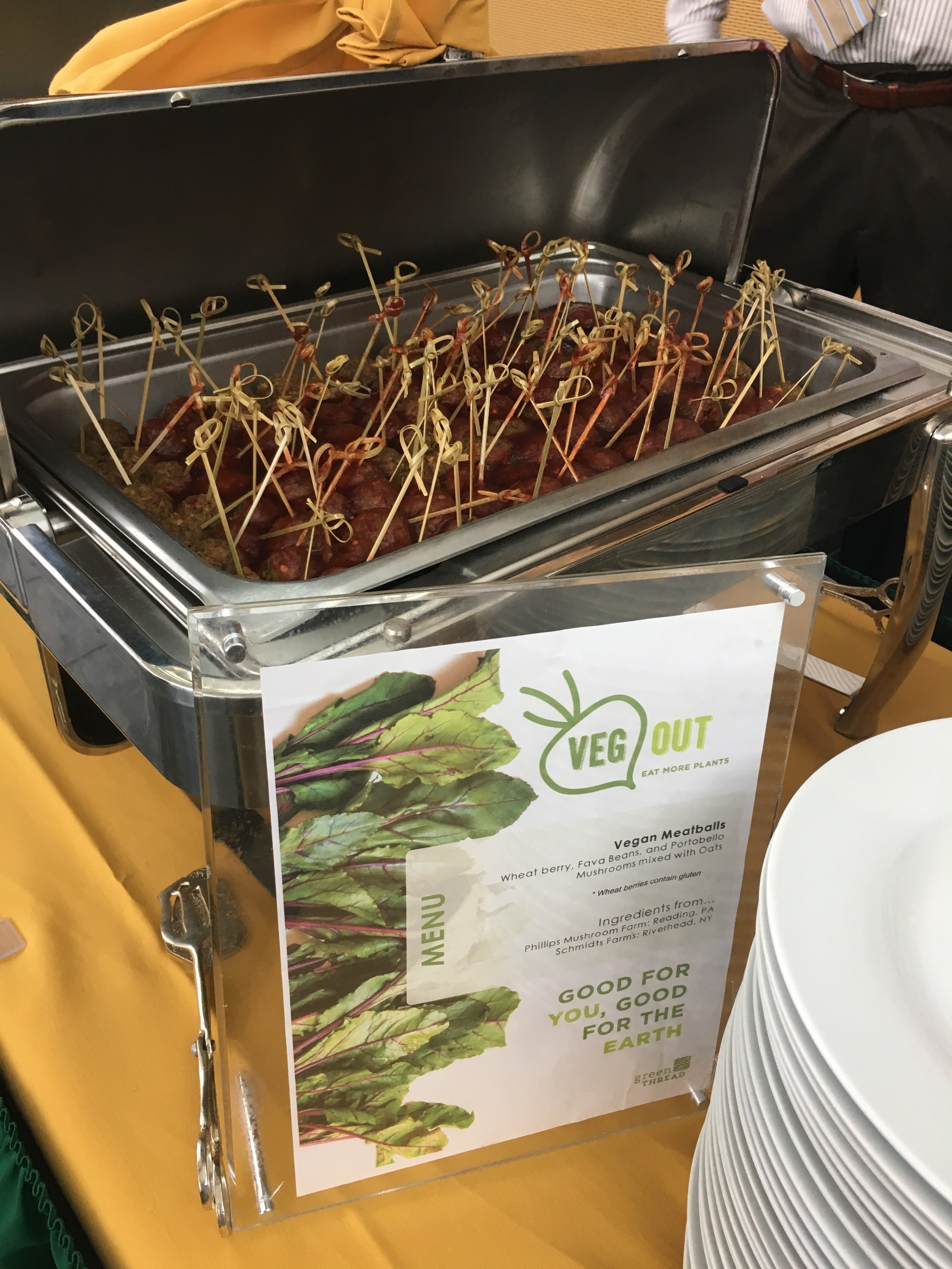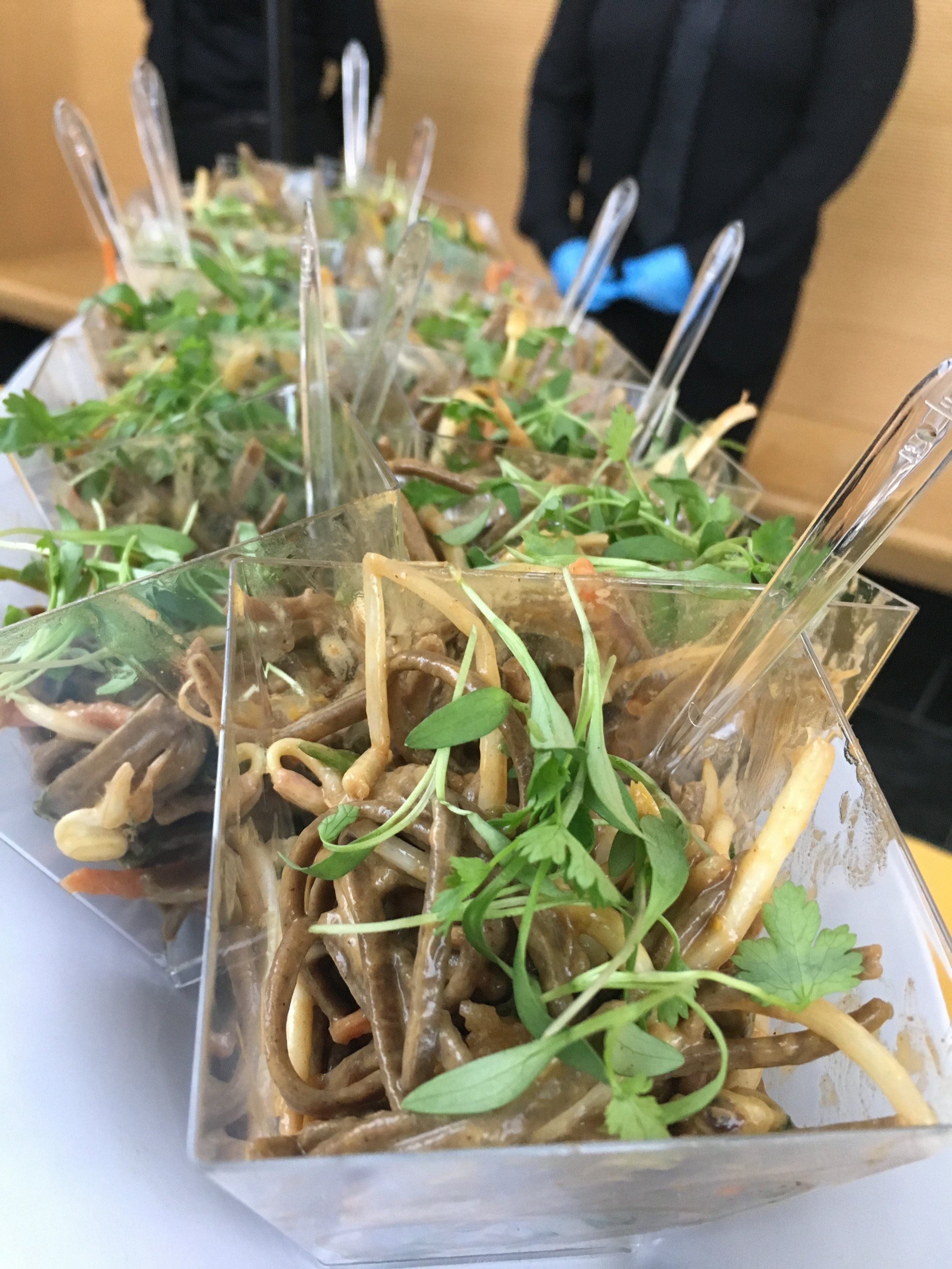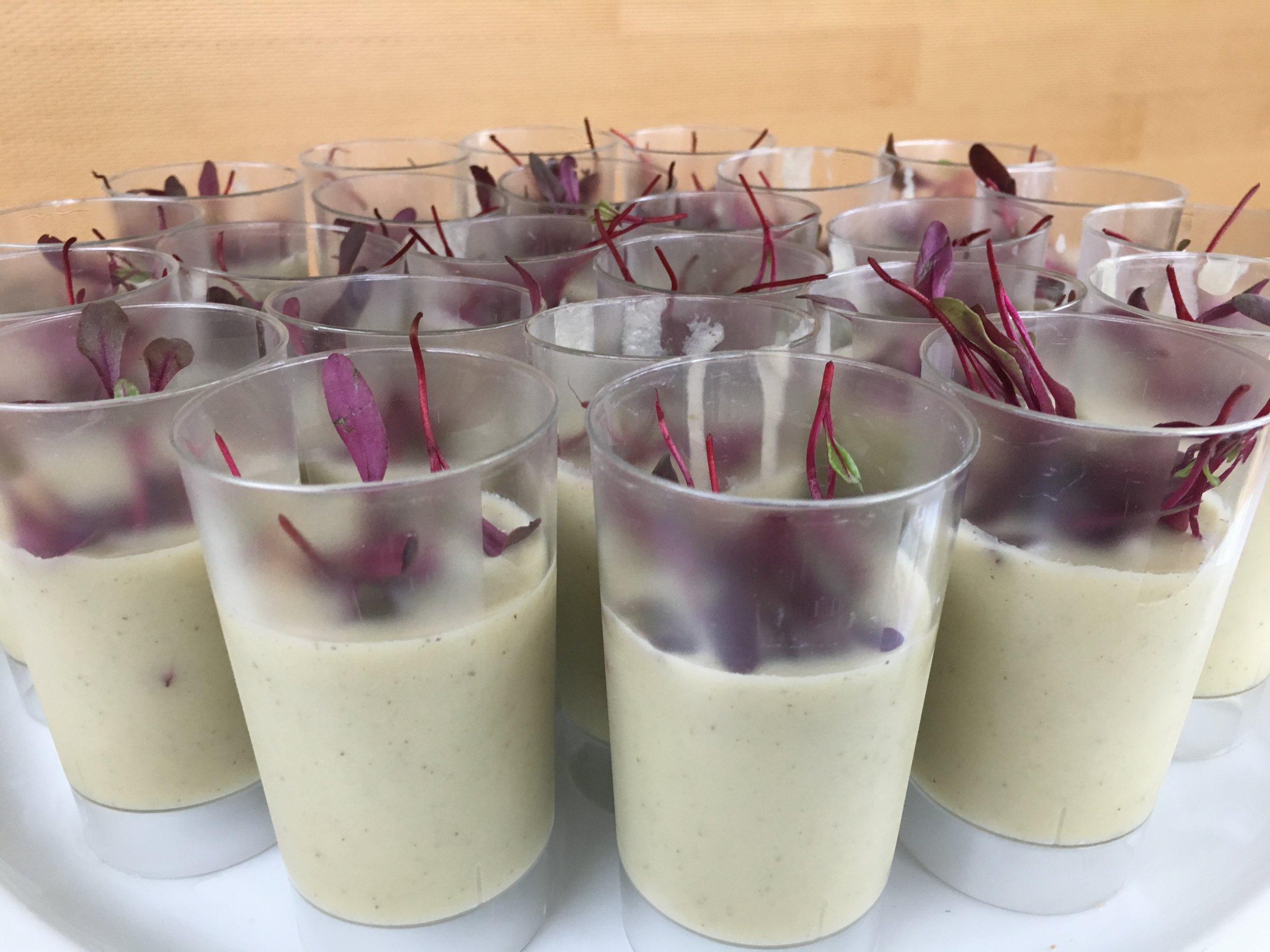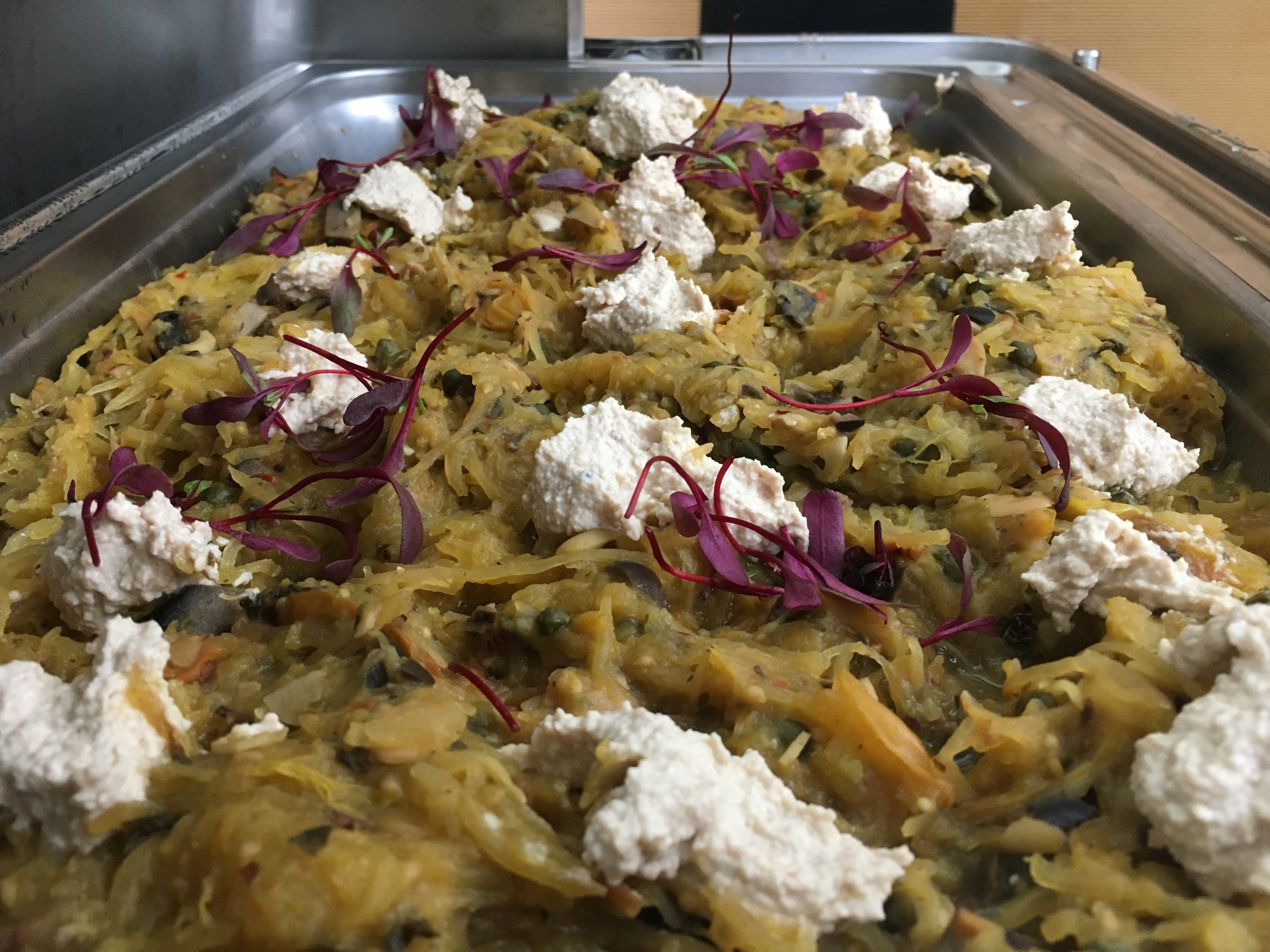Tunisian Pan-Seared Snapper Cake
1 lb Snapper
1/2 cup finely chopped onion
3 garlic cloves, chopped
1 ½ tablespoons chopped fresh parsley
1 ½ tablespoons dried cilantro
½ tablespoon ground cumin
1 teaspoons coarse kosher salt
½ teaspoon ground ginger
¼ teaspoon ground black pepper
½ tbsp lemon juice
1 egg
1 tbsp cornstarch
2 tbsp (approx) panko bread crumbs
Steamed Lobster
Steam 2 lobsters, set tails aside
Use Shells for Bouillabaisse
Poach tails in bouillabaisse prior to service
Sauteed Bacon & Swiss Chard
1 large bunches rainbow chard
1 tablespoons apple cider vinegar
1 tablespoons mild hot sauce
1 teaspoons light brown sugar
½ tablespoon vegetable oil
3 ounces bacon, finely chopped
½ large onion, chopped
4 garlic cloves, thinly sliced
Kosher salt, freshly ground pepper, to taste
Tarragon Beurre Blanc
⅔ cup dry white wine
¼ cup chopped shallots
½ teaspoon whole black peppercorns
2 large tarragon sprigs
3 tablespoons butter, cut into small pieces
1 teaspoon chopped fresh tarragon
Spiced Pickled Apples
½ ounce Whole Allspice
½ ounce Cinnamon Sticks
2 Cloves
1 pint cider vinegar
1 cups water
2 cups honey
2.5 pounds sweet apples, quartered and cored
Falafel
½ pound (about 1 cup) dry chickpeas, soaked overnight
¼ cup onion minced
⅛ cup chopped fresh parsley
2 cloves garlic roasted
¾ tbsp flour
¾ tsp salt
1 tsp cumin
½ tsp ground coriander
⅛ tsp black pepper
⅛ tsp cayenne pepper
Pinch of ground cardamom
Vegetable oil for frying
Middle-Eastern Salad
1 head butter lettuce
1 head red oak lettuce
1 head frisee lettuce
2 sprigs fresh basil
2 sprigs fresh mint
2 globe artichokes
1 english cucumber
1 pt heirloom grape tomato
½ pt kalamata olive
Tahini Sauce
½ cup tahini sesame seed paste
¼ cup lukewarm water
2 cloves roasted garlic
⅛ cup fresh lemon juice
⅛ tsp salt
Champagne Vinaigrette
1 garlic clove, finely chopped
2 tablespoons dijon Mustard
1/4 cup champagne vinegar
2 tablespoons fresh lemon juice
2 tablespoons honey
2 or 3 dashes hot sauce
1/2 teaspoon salt
1/2 teaspoon freshly ground black pepper
1/2 cup extra virgin olive oil
Mediterranean Roasted Vegetable Medley
4 ounces carrot
4 ounces celeriac
4 beets
4 turnip
1 cup onion diced
4 garlic cloves, minced
2 tablespoons olive oil
2 tablespoons balsamic vinegar
1⁄2 teaspoon basil
1⁄2 teaspoon oregano
1⁄2 teaspoon chives
salt and pepper, to taste
Za’atar Roasted Chicken
For the Marinade
2 lemons, juiced
½ large lemon, sliced
7 large garlic cloves, lightly crushed
1 medium onion, minced
⅔ cup olive oil
1 tbsp ground sumac
1 tbsp allspice
1 tbsp cinnamon
1 tsp smoked paprika, more for later
Remaining Ingredients
1 chicken, bone in, skin on
Salt and pepper
3 tbsp Za'atar, divided
1 tbsp toasted pine nuts
½ cup chopped fresh parsley leaves
Chicken-Mustard Veloute
3 cups chicken stock
4 tbsp dijon mustard
1 oz clarified butter
1 oz all-purpose flour
Whipped Potato
3 cups whole milk
½ tablespoon salt
30 ounces yukon potato, peeled, cut into 2-inch cubes
½ small onion, peeled, quartered
2 ½ tablespoons butter, cut into 5 pieces
Ground white pepper
Chopped fresh chives
Butternut Squash Puree
1 medium-to-large butternut squash




